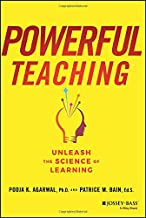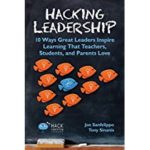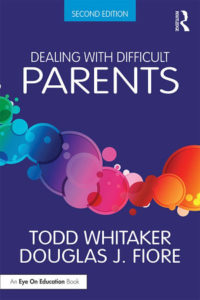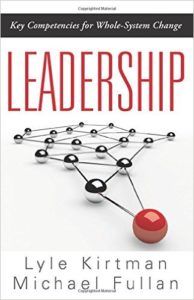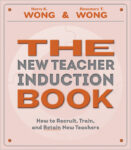
THE New Teacher Induction Book: How to Recruit, Train, and Retain New Teachers
Harry K. Wong and Rosemary T. Wong (Harry K. Wong, Publications, 2024)
New teachers often don’t stay on the job. And yet 50% of new teachers receive no induction at all. 50%! The Wongs share the three keys to onboarding new teachers successfully so they stay and thrive.
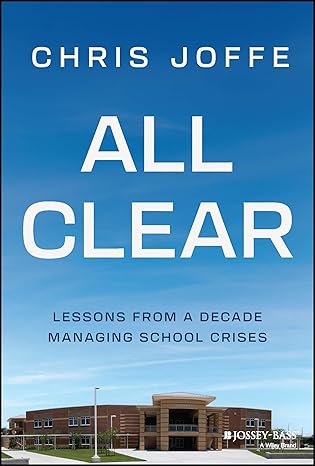
All Clear: Lessons from a Decade Managing School Crises
Chris Joffe (Jossey-Bass, 2024)
You may think you’re prepared for all kinds of emergencies, but there’s more to emergency preparedness than policies and drills. School safety expert Chris Joffe shares much more about the leadership and communication skills leaders need to be truly prepared.
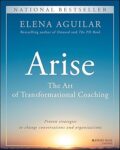
Arise: The Art of Transformational Coaching
Elena Aguilar (Jossey-Bass, 2024)
If you want to improve your school, you need to start by supporting teachers. Supported teachers are teachers who can grow, transform their practice, thrive, and help their students thrive, too. Using the methods of Transformational Coaching, Elena Aguilar shows school leaders how to better coach and support teachers in a way that’s both effective and human-centered.
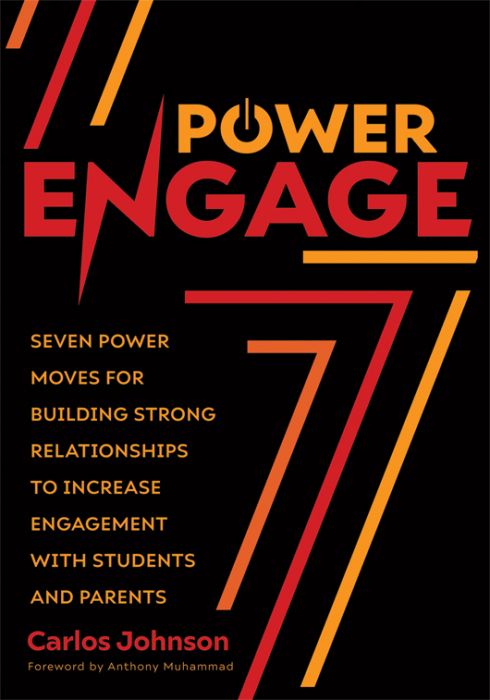
Power Engage: Seven Power Moves for Building Strong Relationships to Increase Engagement with Students and Parents
Carlos Johnson (Solution Tree, 2024)
Educators can supercharge student engagement by building strong relationships and implementing research-based, field-tested strategies. See the overview to read about five of those strategies.
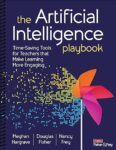
The Artificial Intelligence Playbook: Time-Saving Tools for Teachers that Make Learning More Engaging
Meghan Hargrave, Douglas Fisher, and Nancy Frey (Corwin, 2024)
Artificial intelligence can act as a virtual administrative assistant, freeing teachers to spend their time on the job’s most rewarding and productive work. This book helps teachers learn to use AI to help them better serve students and lighten their workload.
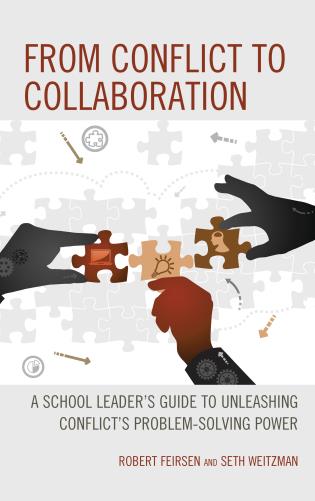
From Conflict to Collaboration: A School Leader’s Guide to Unleashing Conflict’s Problem-Solving Power
Robert Feirsen and Seth Weitzman (Rowman & Littlefield, 2022)
School conflict is inevitable, but school leaders can do something about it. This book shows how to use the 5 steps of the design-thinking process to address major conflicts in your school.
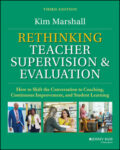
Rethinking Teacher Supervision & Evaluation: How to Shift the Conversation to Coaching, Continuous Improvement, and Student Learning
Kim Marshall (Jossey-Bass, 2024)
Traditional teacher observations and evaluations rarely improve teaching and learning. But it doesn’t have to be this way. Kim Marshall shares his much more impactful mini-observation and face-to-face feedback cycle. Plus, his approach to supervision is even more comprehensive; he shows how to supervise teaching, learning, and planning.
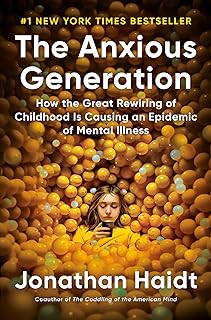
The Anxious Generation: How the Great Rewiring of Childhood is Causing an Epidemic of Mental Illness
Jonathan Haidt (Penguin Press, 2024)
As schools are considering banning phones this is the classic book to read. It provides the research that connects cellphone use to increasing rates of anxiety, depression, and suicide in our students. But it’s not too late! Schools are uniquely positioned to ban phones and increase in-person interaction among students.
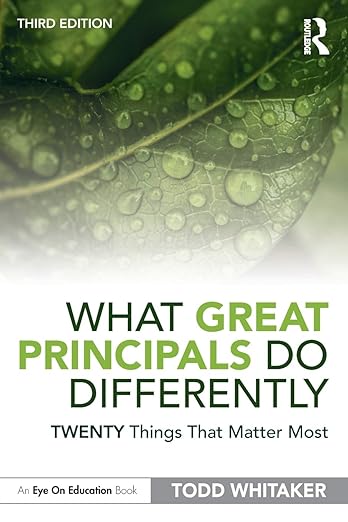
What Great Principals Do Differently: Twenty Things That Matter Most
Todd Whitaker (Routledge, 2020)
Learn the 20 things that the most effective principals do that make them so exceptional from Todd Whitaker’s research and his experience.
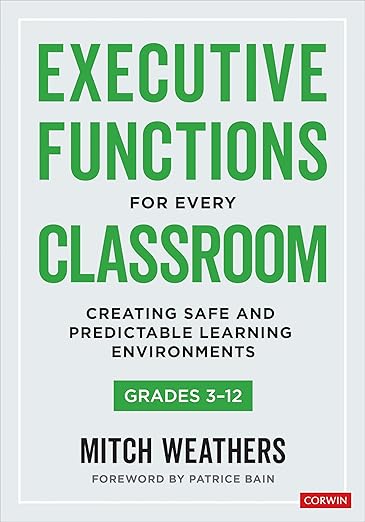
Executive Functions for Every Classroom
Mitch Weathers (Corwin, 2024)
Students can’t succeed in school (or life!) without executive function skills — skills like being organized, time management, and keeping your materials in order. This book shows how teachers can weave these skills into their classroom routines.
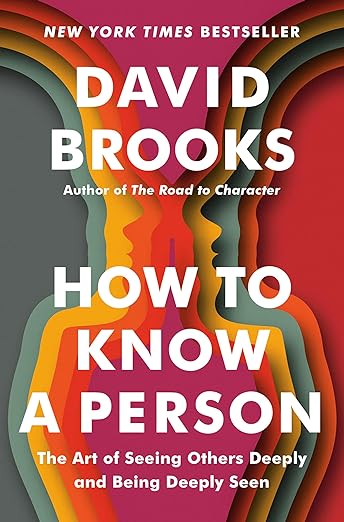
How to Know a Person: The Art of Seeing Others Deeply and Being Deeply Seen
David Brooks (Random House, 2024)
A basic yet universal human need is to be understood, known, and recognized. This book helps us develop the awareness and skills so we can see others and make them feel seen, heard, and understood. These are fantastic interpersonal skills for school leaders to develop.
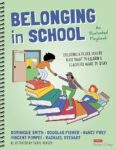
Belonging in School: Creating a Place Where Kids Want to Learn and Teachers Want to Stay
Dominique Smith, Douglas Fisher, Nancy Frey, Vincent Pompei, and Rachael Stewart (Corwin Press, 2024)
Students need to feel that they belong in order to learn and grow at school. But educators can’t assume belonging will just automatically happen. This book shares concrete steps to help us build classrooms where students will experience belonging.
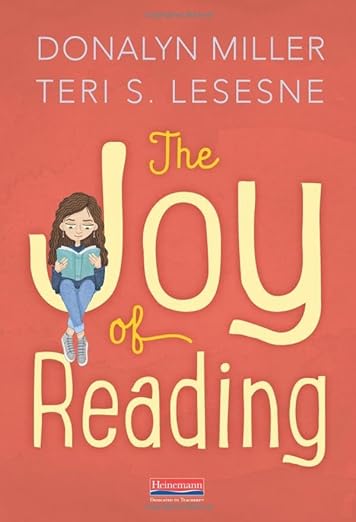
The Joy of Reading
Donalyn Miller and Teri Lesesne (Heinemann, 2022)
Decades of over-testing and standardized learning have hurt students’ joy in reading. Students now report they are bored and uninterested when it comes to reading. Research tells us that this undermines reading achievement. Fortunately, all teachers can build back reading joy by incorporating the five elements introduced in this book: time, access, choice, response, and community.
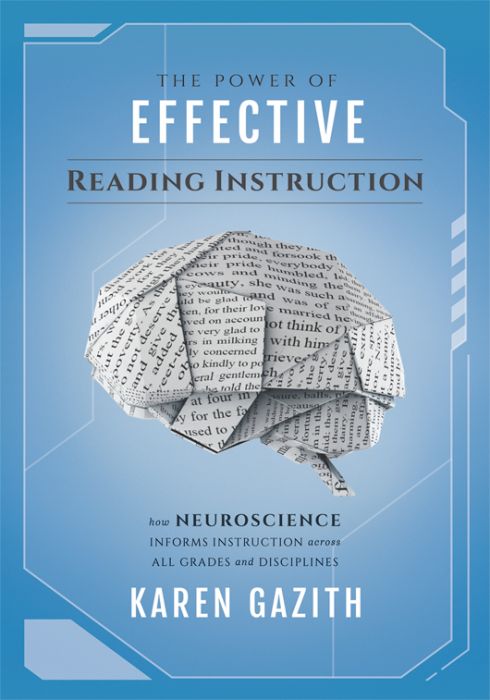
The Power of Effective Reading Instruction: How Neuroscience Informs Instruction Across All Grades and Disciplines
Karen Gazith (Solution Tree, 2024)
Everyone is talking about the Science of Reading. Neuroscience and decades of research have confirmed how children learn to read, and we need to use that information in our instruction. This book shows teachers of all grades and content areas how to use evidence-based instruction, strategies, and interventions to support all students with their reading.
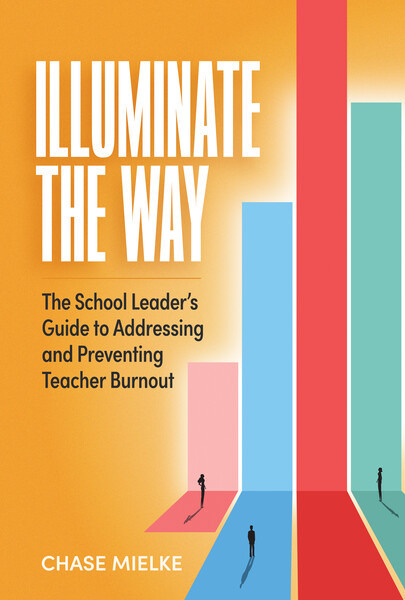
Illuminate the Way: The School Leader’s Guide to Addressing and Preventing Teacher Burnout
Chase Mielke (ASCD, 2023)
The twin crises of teacher attrition and teacher burnout are deeply impacting school environments and student outcomes. School working conditions are the cause of burnout and attrition, and they must also be the solution. Mielke shows leaders how to improve teachers’ working conditions by meeting their needs for autonomy, relatedness, and efficacy.
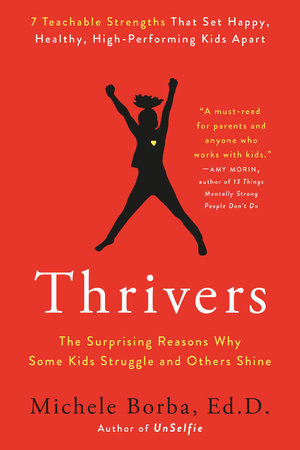
Thrivers: The Surprising Reasons Why Some Kids Struggle and Others Shine
Michele Borba (Putnam, 2021)
Kids in today’s world are taught to strive for external achievements, but good grades and test scores no longer predict success today. Mental health statistics prove it. Kids need something different to thrive. They need strength of character. Families and educators can and must work together to teach these strengths so our kids can flourish in this uncertain world.
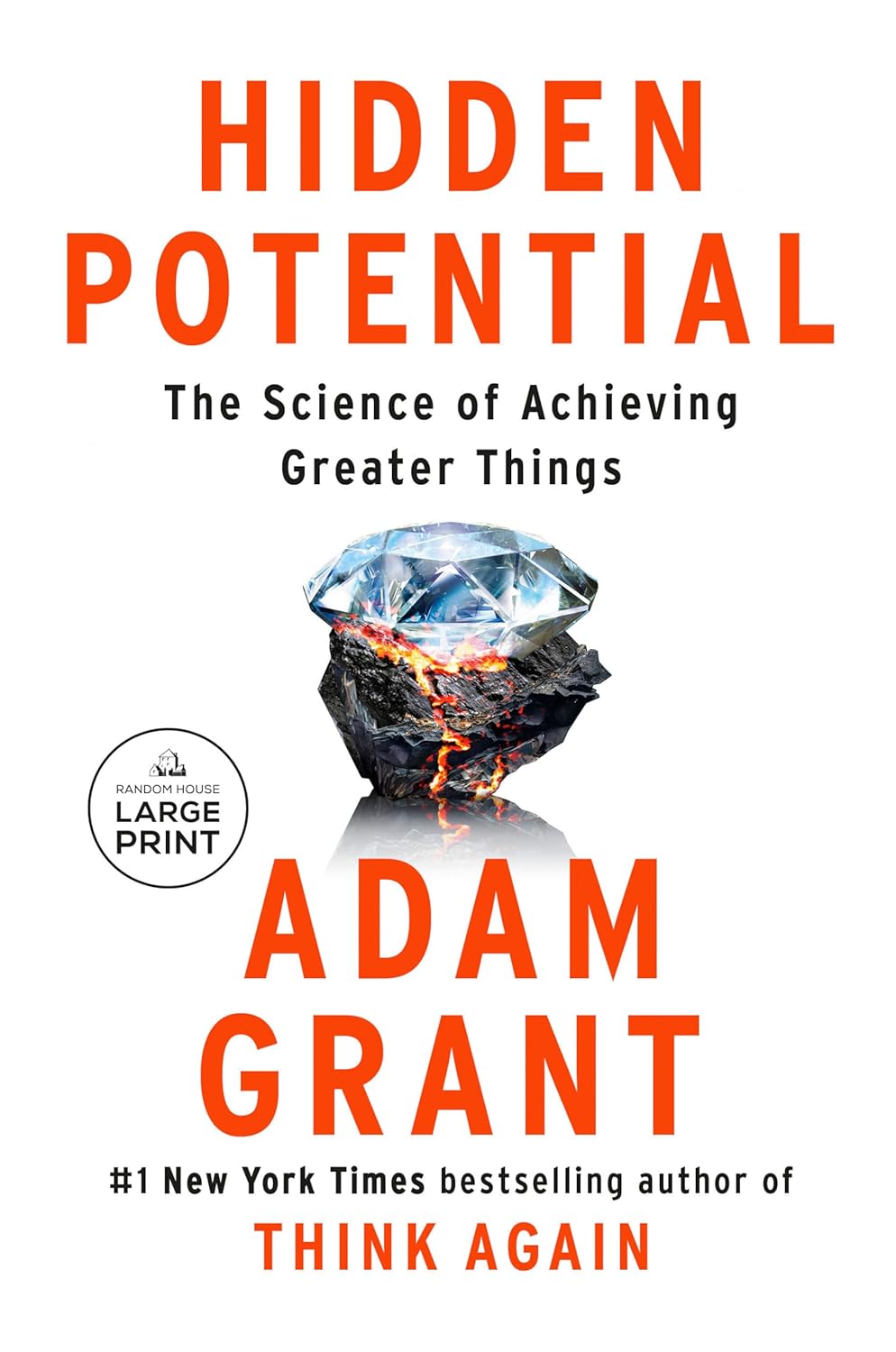
Hidden Potential: The Science of Achieving Greater Things
Adam Grant (Penguin Random House, 2023)
Everyone has hidden potential for growth and achievement, but typical approaches to studying, practicing, and organizing education often leave this potential untapped. Grant researches the practices of high-achieving individuals and shares the surprising skills, scaffolds, and systems that unlock potential. The good news is that anyone can learn and teach them.
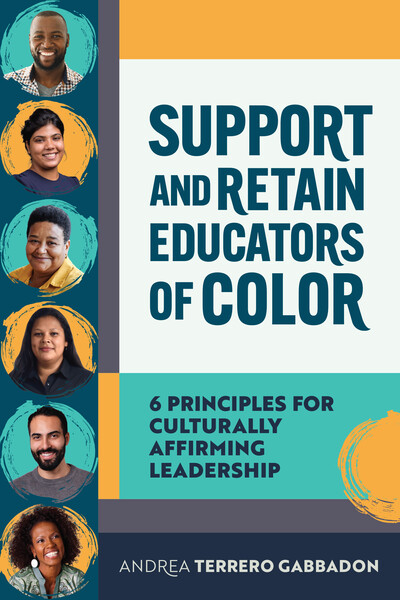
Support and Retain Educators of Color: 6 Principles for Culturally Affirming Leadership
Andrea Terrero Gabbadon (ASCD, 2023)
The stark truth is that even as we make progress in hiring more educators of color, we are not successful in retaining them. This book shares research-based practices to help school leaders create workplaces that affirm and support educators of color so they stay.
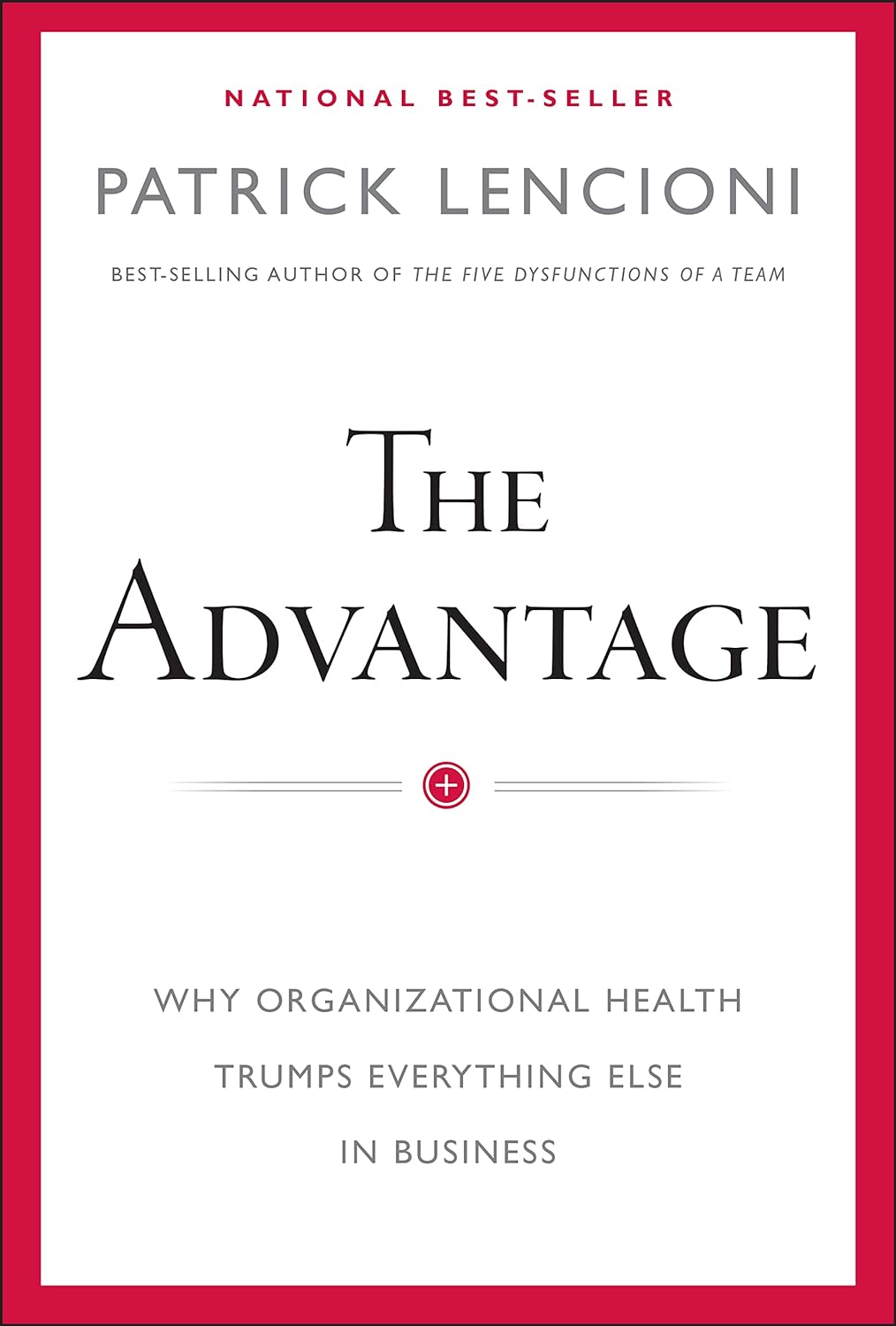
The Advantage: Why Organizational Health Trumps Everything Else in Business
Patrick Lencioni (Jossey-Bass, 2012)
More than anything, organizations should strive for organizational health. This book clearly and powerfully explains what your organization needs to do to become healthy: 1) Build a cohesive leadership team, 2) Create clarity, 3) Overcommunicate clarity, and 4) Reinforce clarity.
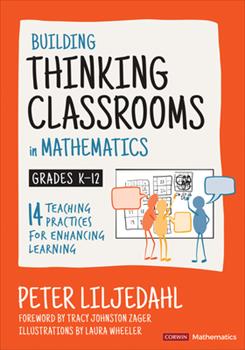
Building Thinking Classrooms in Mathematics: 14 Teaching Practices for Enhancing Learning
Peter Liljedahl (Corwin, 2021)
Unfortunately, the way we learned to teach math promotes more mimicry than thinking in our students. Peter did 15 years of research actually in math classrooms and found the 14 most effective changes we can make to get our students to think, persevere, and ultimately learn.
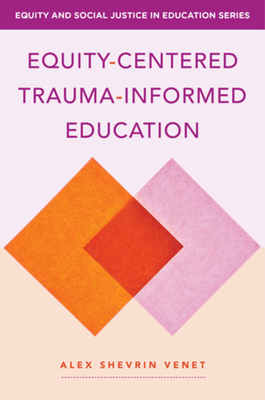
Equity-Centered Trauma-Informed Education
Alex Shevrin Venet (W.W. Norton & Company, 2021)
This book is a comprehensive guide that explores the intersection of trauma-informed practices and equity-centered education. It provides a framework for educators to create safe and supportive learning environments that prioritize the needs of marginalized and trauma-affected students.
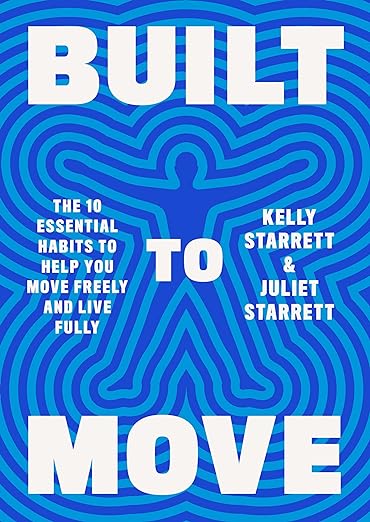
Built to Move: The 10 Essential Habits to Help You move Freely and Live Fully
Kelly Starrett and Juliet Starrett (Alfred A. Knopf, 2023)
School leaders are often too busy to carve out time for their own health. This book shows that the secret to staying healthy and pain free is not adding in an hour at the gym each day, it’s weaving movement and other practices into your day, throughout each day – much more feasible for the busy school leader!
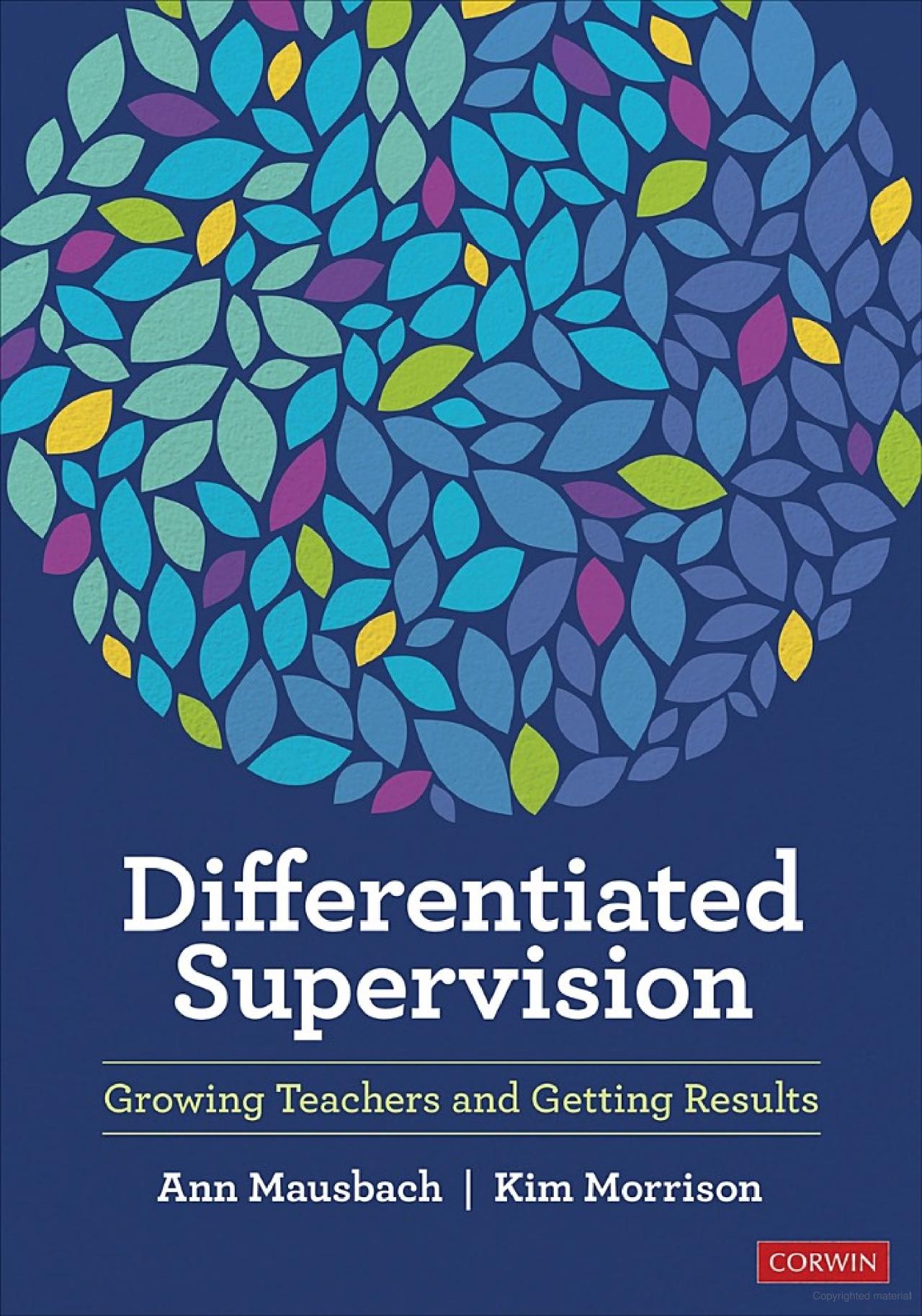
Differentiated Supervision: Growing Teachers and Getting Results
Ann Mausbach and Kim Morrison (Corwin Press, 2023)
Teachers thrive with supervision that is individualized and targets their unique concerns and challenges. This book’s new approach to supervision helps you expand your toolbox of supervisory practices and truly grow strong teachers.
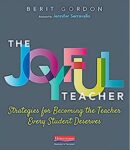
The Joyful Teacher: Strategies for Becoming the Teacher Every Student Deserves
Berit Gordon (Heinemann, 2020)
Teaching is famously challenging and often exhausting, but there is much teachers can do to improve their experience and effectiveness. This book includes 100 research-based strategies on everything from classroom culture to formative assessments to planning.
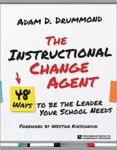
The Instructional Change Agent: 48 Ways to Be the Leader Your School Needs
Adam D. Drummond (ICLE, 2019)
As a leader, you are responsible for everything from school culture, instruction, and student engagement, to how your school is viewed in the community. Fortunately, there are tried-and-tested strategies for bringing about positive change in each of these areas and this summary contains 21 of them.
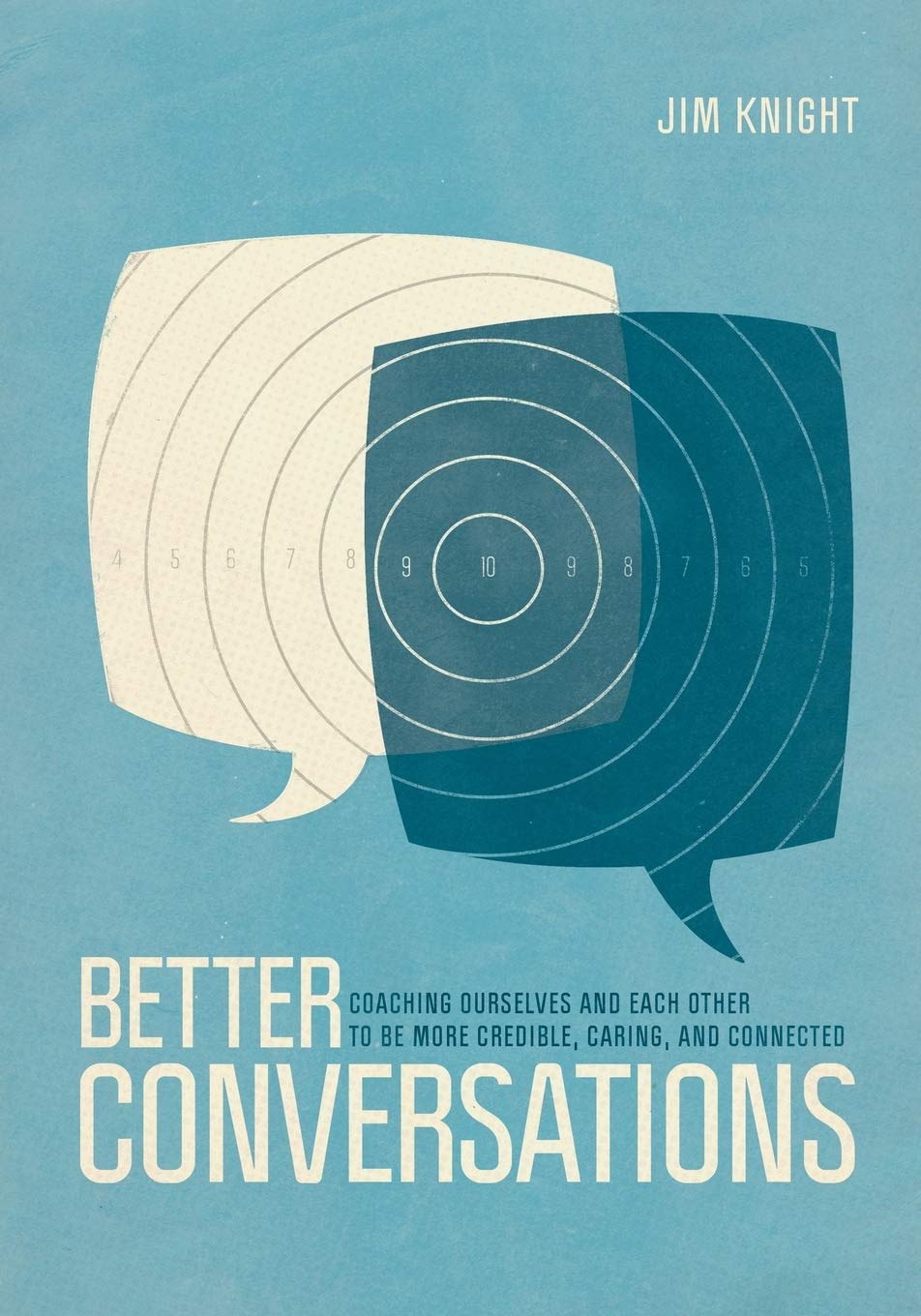
Better Conversations: Coaching Ourselves and Each Other to Be More Credible, Caring, and Connected
Jim Knight (Corwin, 2016)
Conversations are the glue that holds our schools together – building trust, and promoting learning and growth. This book shows leaders how to improve their communication skills by discarding their ineffective communication patterns for new, life-giving, and more effective habits.

Educator Bandwidth: How to Reclaim Your Energy, Passion, and Time
Jane A.G. Kise and Ann C. Holm (ASCD, 2022)
With your available bandwidth, you make decisions, exercise will power, express your emotions civilly, manage your time, and achieve your goals. This book shows how our habits, our workplaces, and modern technology are draining our bandwidth and what we can do to get our bandwidth back.
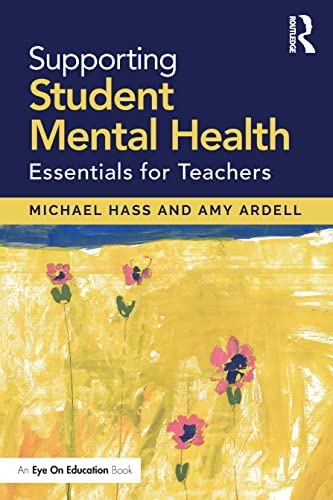
Supporting Student Mental Health: Essentials for Teachers
Michael Hass and Amy Ardell (Routledge, 2022)
Our students are suffering from mental health challenges, and many don’t receive needed treatment. Teachers can play an important and sometimes life-saving role as “gateway” providers of mental health care and this book shows them how.
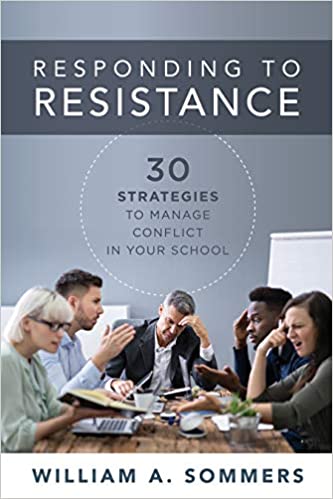
Responding to Resistance: 30 Strategies to Manage Conflict in Your School
William Sommers (Solution Tree Press, 2021)
When managed poorly, conflict can consume huge amounts of school leaders’ time, energy, and resources. In this book you’ll find a large repertoire of strategies to deal with conflict so you can create more peaceful environments where precious time can be spent on teaching and learning.
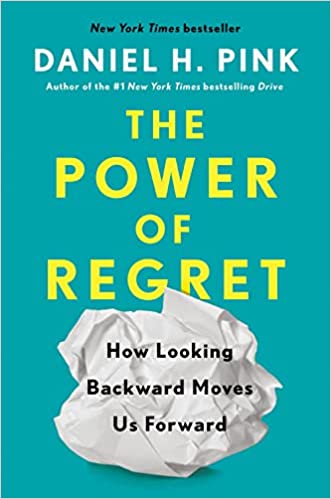
The Power of Regret: How Looking Backward Moves Us Forward
Daniel H. Pink (Riverhead Books, 2022)
Despite what people say, regret is universal, it is completely human. However, Dan Pink shows us how to make regret valuable — that is, how to use it to improve decision making, performance, and even strengthen our relationships. This short overview includes a great idea for a staff workshop!
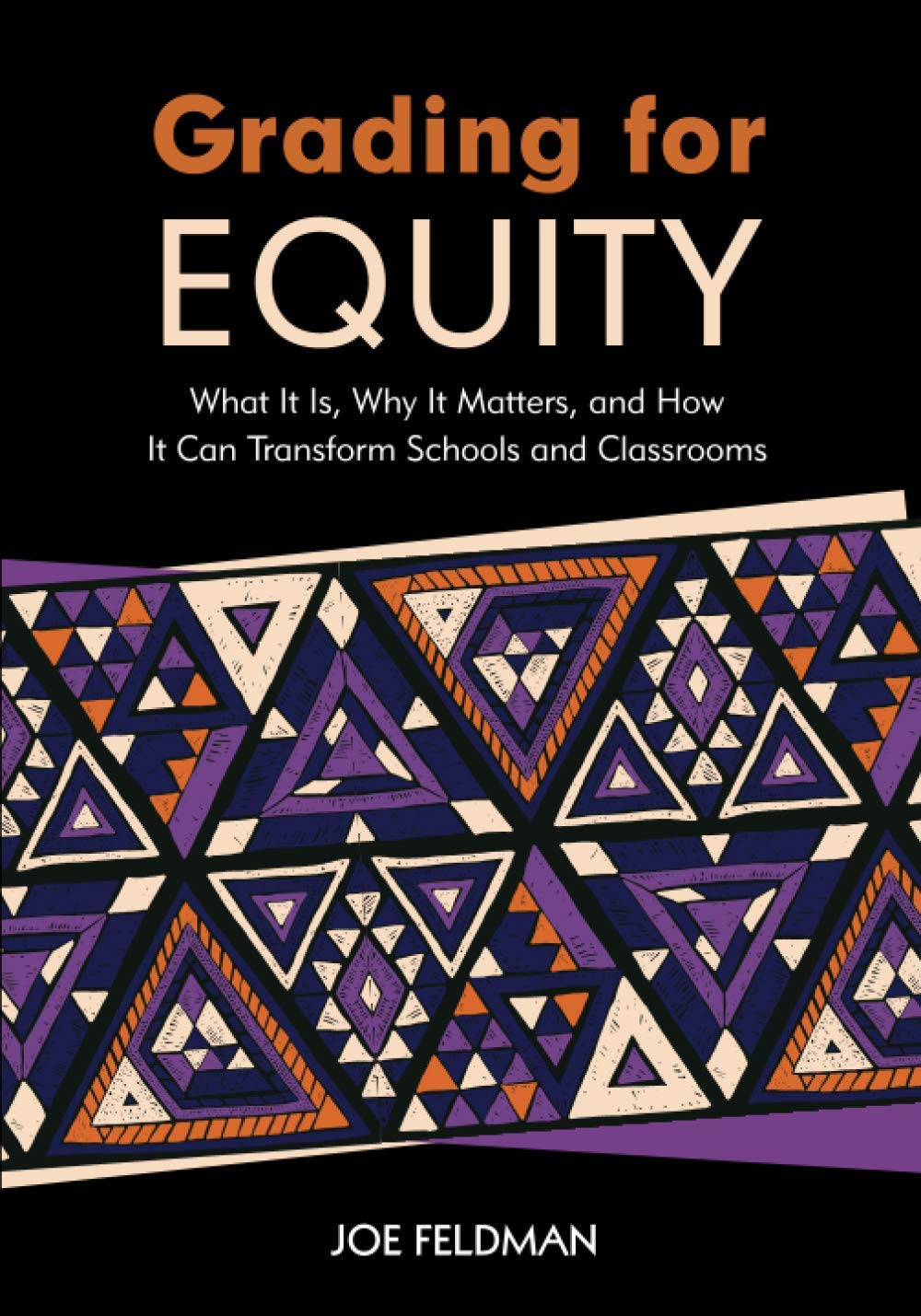
Grading for Equity: What It Is, Why It Matters, and How It Can Transform Schools and Classrooms
Joe Feldman (Corwin, 2018)
Many of our current common grading practices harm students and learning. This book shares research-based grading practices that are more accurate, less biased, and more motivating. By adopting new grading practices, you can improve learning, equity, and transparency all at once.
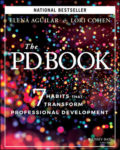
The PD Book: 7 Habits That Transform Professional Development
Elena Aguilar and Lori Cohen (Jossey-Bass, 2022)
Done well, professional development has the power to transform our thinking and our practice. This book shares the secrets – really the tools and strategies – for anyone, even those who have never led PD before, to lead authentic, engaging, and transformative professional development. Learn more.
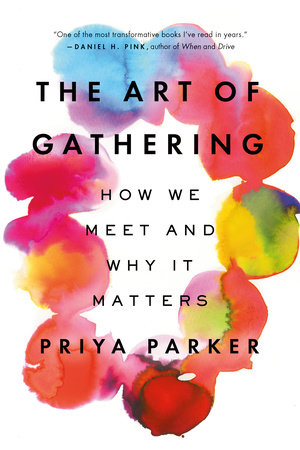
The Art of Gathering: How We Meet and Why It Matters
Priya Parker (Riverhead Books, 2018)
So much of what we do in schools involves gathering – faculty meetings, PD workshops, PLCs, leadership teams, Back-to-School Night, even everyday classes. What if we could make these meetings truly significant, truly transformative, so people walk out of them with a renewed sense of purpose, a feeling of belonging, and a heck of a lot more competent to do the important work of schooling? Learn how with this book.
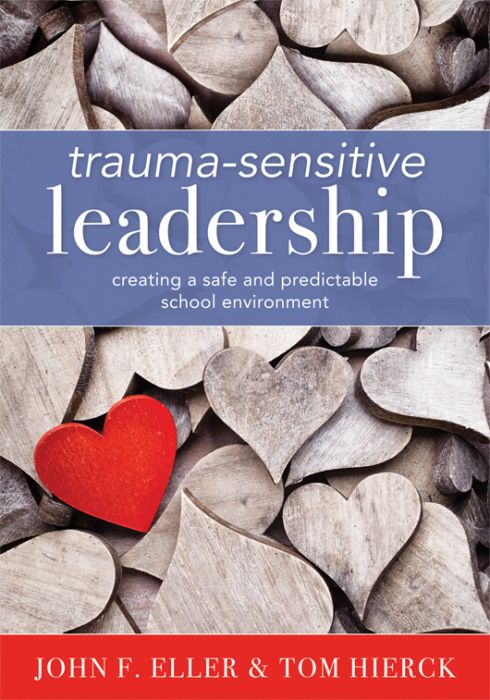
Trauma-Sensitive Leadership: Creating a Safe and Predictable School Environment
John F. Eller and Tom Hierck (Solution Tree, 2022)
Because the recent increase in traumatic experiences, leaders need to develop their understanding of trauma’s impact and promote understanding among staff. With trauma-sensitive strategies in place, schools can better support trauma-impacted students, enabling them to learn and thrive. Learn more.
Click here for free PPT workshop
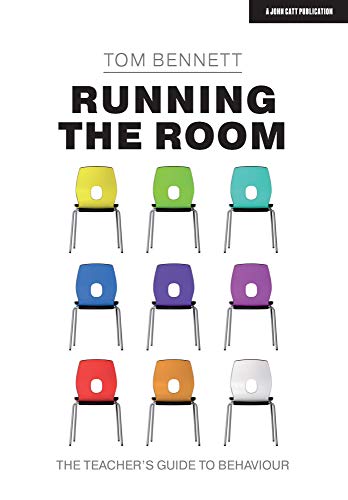
Running the Room: The Teacher’s Guide to Behaviour
Tom Bennett (John Catt Educational, 2020)
Teachers must embrace their role as the authority who is running the room through effective planning, teaching, and maintenance of behavior standards. Luckily teachers CAN learn the skill of behavior management if they haven’t already. Reach out to Jenn for materials to run a classroom management workshop for teachers. Learn more.
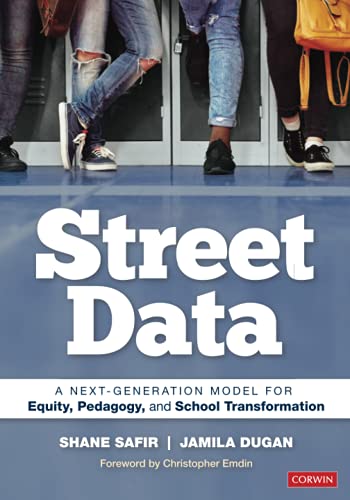
Street Data: A Next-Generation Model for Equity, Pedagogy, and School Transformation
Shane Safir and Jamila Dugan (Corwin, 2021)
This book presents a new model for school transformation that places equity at the center. It begins by looking beyond “big data” and instead listening to the humans in your school community.
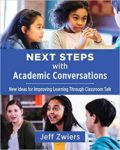
Next Steps with Academic Conversations: New Ideas for Improving Learning Through Classroom Talk
Jeff Zwiers (Stenhouse Publishers, 2019)
This book helps teachers improve the quality of academic conversations in the classroom so they can boost learning and deepen thinking. Students learn five core skills they will use in school and life and which also make learning more social and fun. Click here for free PPT workshop

From Burnt Out to Fired Up: Reigniting Your Passion for Teaching
Morgane Michael (Solution Tree Press, 2022)
If you are experiencing burnout, you don’t have to stay stuck. There are concrete strategies you can learn to address it. This book helps you better understand how to get out of burnout. It hands you the tools and strategies you need to recharge. Click here for free PPT workshop
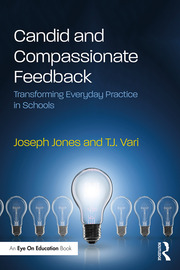
Candid and Compassionate Feedback: Transforming Everyday Practice in Schools
Joseph Jones and T.J. Vari (Routledge, 2019)
School leaders must be honest and direct about where teachers need to improve and how to go about it. However, being “brutally” honest or inconsiderate of others’ feelings won’t work. Candor must be accompanied by compassion as well.
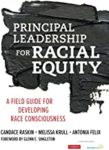
Principal Leadership for Racial Equity
Candace Raskin, Melissa Krull, and Antonia Felix (Corwin, 2021)
School leaders are uniquely positioned to forge a path toward racial equity in schools. By better understanding themselves, their schools, their teachers, and their students, school leaders can take the necessary steps to help replace inequitable and ineffective practices with those that benefit all students.
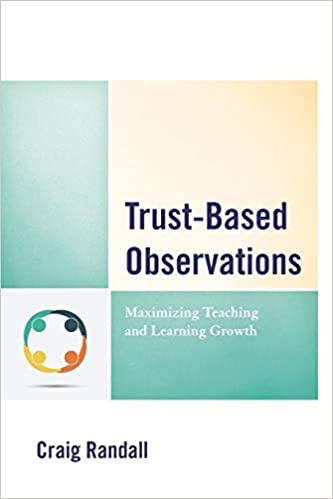
Trust-Based Observations: Maximizing Teaching and Learning Growth
Craig Randall (Rowman & Littlefield, 2020)
Because traditional observation models create a culture of fear, they do not improve teaching and learning. Trust-based observations work because they put relationships first. Teachers take inspired risks and achieve greater results when they feel safe and supported.
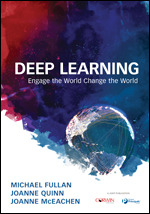
Deep Learning: Engage the World, Change the World
Michael Fullan, Joanne Quinn and Joanne McEachen (Corwin, 2018)
When schools transition to deep learning, they shift from a focus on college or career-readiness to life-readiness. Deep learning helps students develop the skills they need to thrive in a complex world: character, citizenship, collaboration, communication, creativity, and critical thinking (aka ‘the 6Cs’).
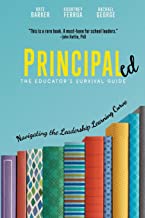
PRINCIPALed: Navigating the Leadership Learning Curve
Kate Barker, Kourtney Ferrua, and Rachael George (Dave Burgess Consulting, Inc., 2020)
These veteran principals share concrete strategies and inspirational ideas to help any school leader navigate the challenging terrain of being a principal artfully and actually enjoy the job at the same time!
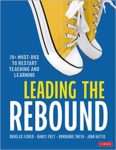
Leading the Rebound: 20+ Must-Dos to Restart Teaching and Learning
Douglas Fisher, Nancy Frey, Dominique Smith, and John Hattie (Corwin, 2021)
Leaders have an incredible opportunity to “rebound” from the pandemic and revitalize teaching and learning. This book points to 22 priorities to guide leaders in where to begin in re-starting school next year.
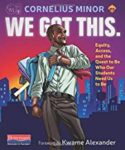
We Got This. Equity, Access, and the Quest to Be Who Our Students Need Us to Be.
Cornelius Minor (Heinemann, 2019)
This book is for teachers who want to address inequities in their classrooms, with practical skills, now. By making your classroom radically student-centered, listening to students, and changing your mindset and pedagogy to bend the curriculum and strategies to work for students, you can ensure every kid has the opportunity to succeed.
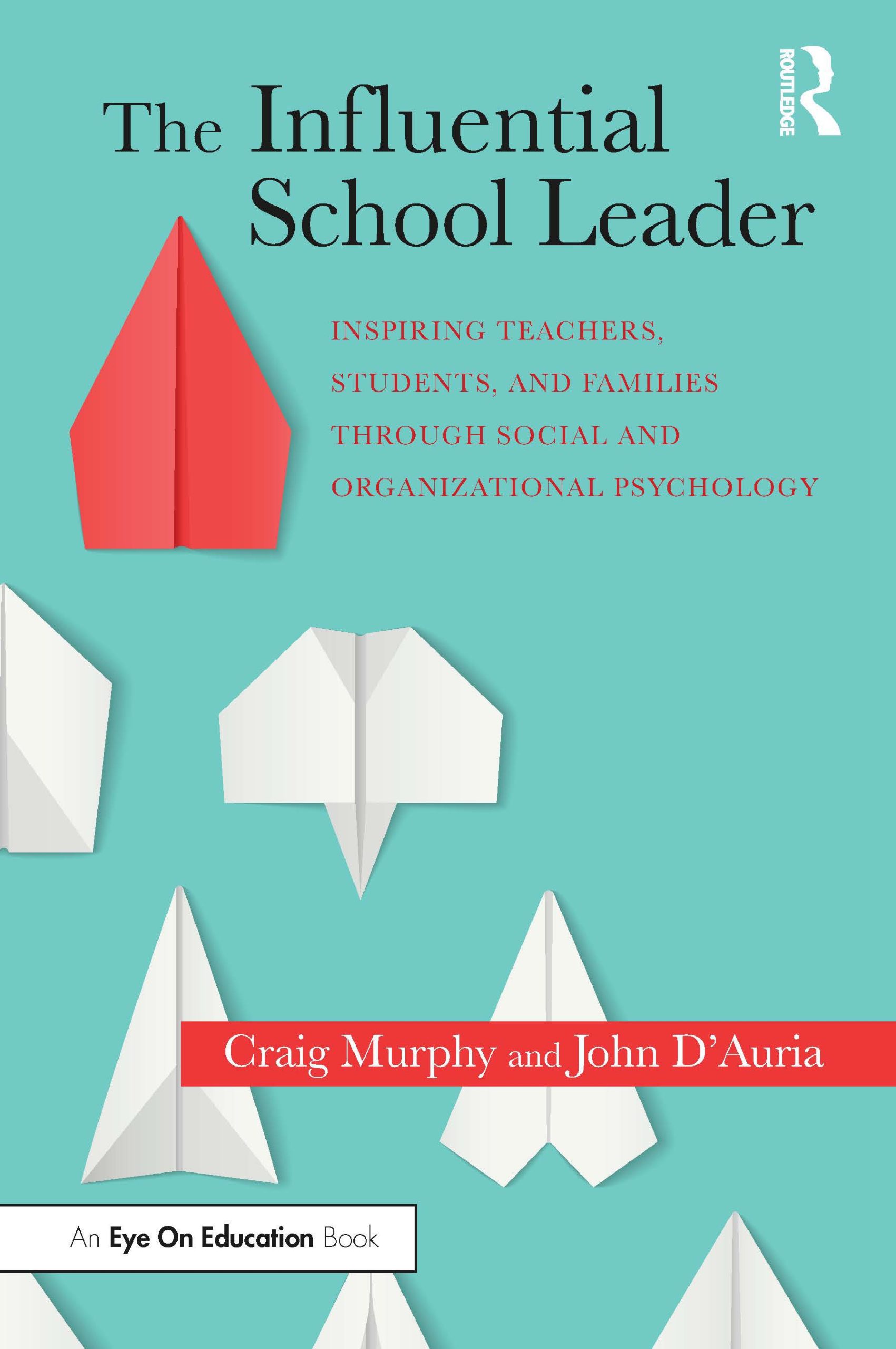
The Influential School Leader: Inspiring Teachers, Students, and Families Through Social and Organizational Psychology
Craig Murphy and John D'Auria (Routledge, 2021)
School leaders are increasingly finding themselves confronted with complex challenges and issues in schools. This book incorporates lessons from social and organizational psychology to help leaders positively influence and change their schools.
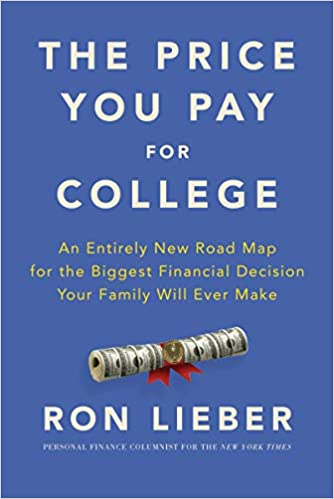
The Price You Pay for College: An Entirely New Road Map for the Biggest Financial Decision Your Family Will Ever Make
Ron Lieber (Harper, 2021)
This book helps to demystify the cost and value when searching for a residential college or university. The tremendous resources and tips help families as they navigate the biggest financial decision of their lives. Click here for free PPT workshop
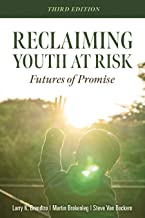
Reclaiming Youth at Risk: Futures of Promise
Larry K. Brendtro, Martin Brokenleg, and Steve Van Bockern (Solution Tree Press, 2019)
This book provides a model of resilience that educators can use to connect with and reclaim youth at risk. The authors propose that rather than focus on behavior (the symptoms), we should focus on the basic unmet needs of youth at risk: ATTACHMENT, ACHIEVEMENT, AUTONOMY, and ALTRUISM. Click here for free PPT workshop
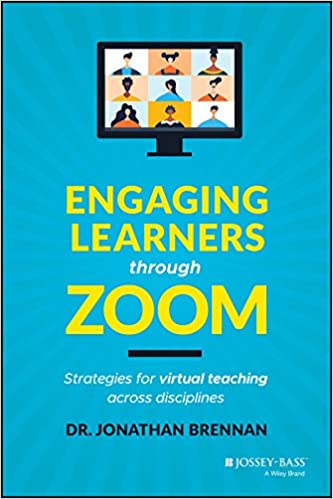
Engaging Learners Through Zoom: Strategies for Virtual Teaching Across Disciplines
Jonathan Brennan (Jossey-Bass, 2021)
This is a 2-page overview with 30 strategies teachers can use to better engage their students through Zoom (or other video-conferencing platforms).
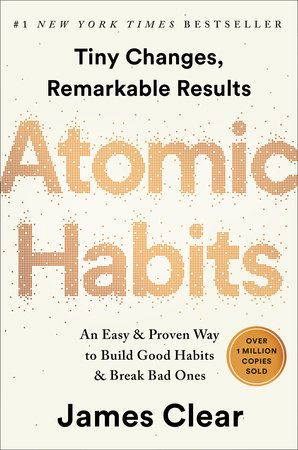
Atomic Habits: An Easy and Proven Way to Build Good Habits and Break Bad Ones
James Clear (Penguin Random House, 2018)
This book shows you how to build better habits in life and work. With four simple laws of human behavior, you can make any habit a regular part of your life.
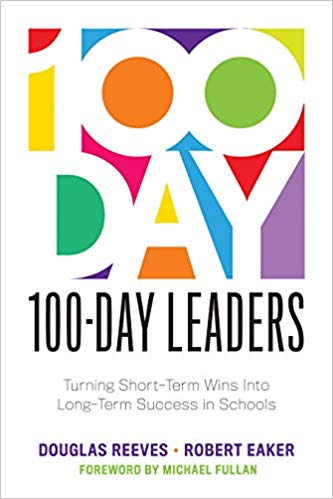
100-Day Leaders: Turning Short-Term Wins Into Long-Term Success in Schools
Douglas Reeves and Robert Eaker (Solution Tree Press, 2019)
This book provides a framework to show educational leaders how to produce significant results in just 100 days. Yes, 100 days.
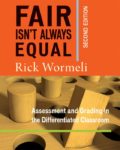
Fair Isn’t Always Equal: Assessment and Grading in the Differentiated Classroom
Rick Wormeli (Stenhouse Publishers, 2018)
In differentiated classrooms, teachers must develop ethical grading and assessment practices that lead to a clear and accurate report of what students know and are able to do. This book shares the theories and practices teachers need to make this happen.
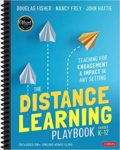
The Distance Learning Playbook, Grades K-12: Teaching for Engagement and Impact in any Setting
Douglas Fisher, Nancy Frey, and John Hattie (Corwin, 2021)
This book takes the research on what improves student learning, along with lessons from recent crises, and applies that to our current situation with distance learning. Each chapter reminds teachers of the pedagogical approaches that are most effective with students and which can easily be adapted for distance learning.
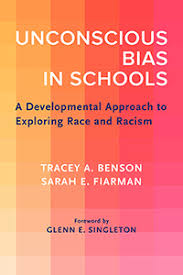
Unconscious Bias in Schools A Developmental Approach to Exploring Race and Racism
Tracey A. Benson and Sarah E. Fiarman (Harvard Education Press, 2020)
Leaders must build awareness about unconscious racial bias within schools. Uncovering the ways racial bias impacts our students is the first step in ultimately addressing and eradicating racial biases in our schools.
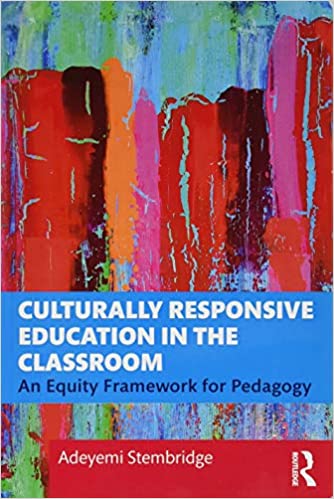
Culturally Responsive Education in the Classroom: An Equity Framework for Pedagogy
Adeyemi Stembridge (Routledge, 2020)
Culturally Responsive Education is more than a collection of classroom strategies. It is a teaching philosophy that embraces students’ cultural knowledge and identities to help them engage deeply and achieve more in the classroom.
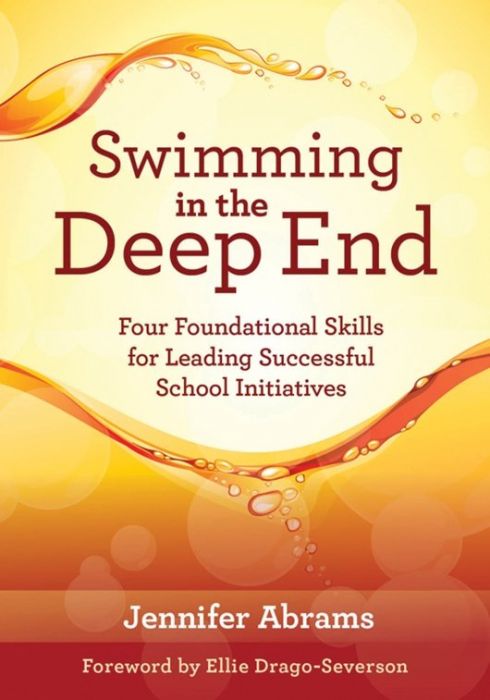
Swimming in the Deep End: Four Foundational Skills for Leading Successful School Initiatives
Jennifer Abrams (Solution Tree Press, 2019)
School leaders need to lead through complex changes during challenging times. This book is for leaders who want to develop the personal side of leadership to help them manage the staff resistance that arises with these changes.
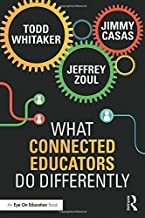
What Connected Educators Do Differently
Jimmy Casas, Todd Whitaker, and Jeffrey Zoul (Routledge, 2015)
When educators connect with other professionals through social media to seek answers, share insights, and spark innovations, it improves teaching and learning locally — and across the globe. This book shares specific actions to become a “connected educator.”
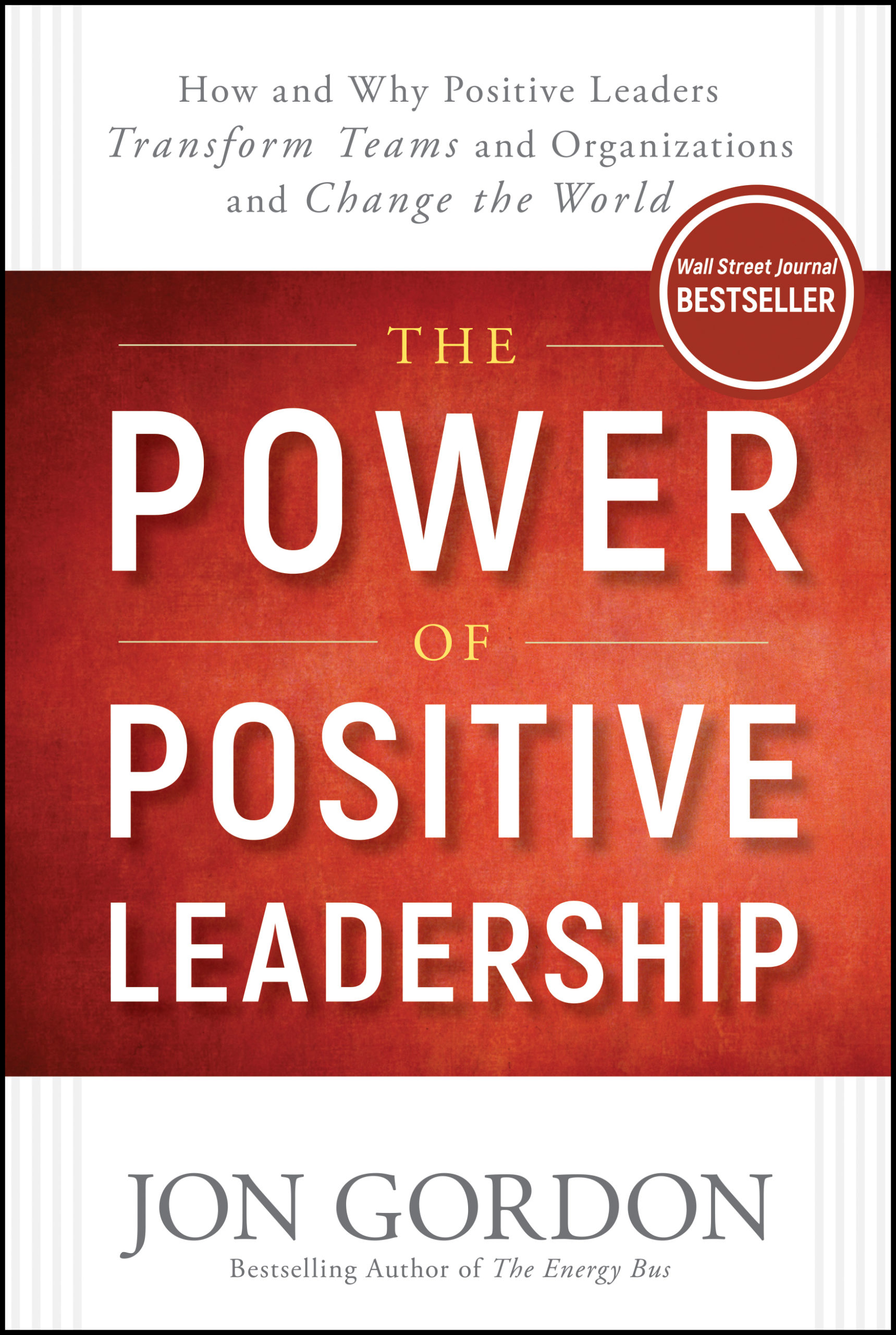
The Power of Positive Leadership: How and Why Positive Leaders Transform Teams and Organizations and Change the World
Jon Gordon (Wiley, 2017)
Positive leaders have a tremendous impact on their organizations, teams, relationships, and themselves! This book provides a framework with simple and practical ideas to help you become a positive leader.
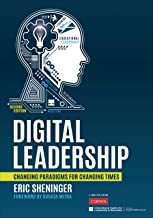
Digital Leadership: Changing Paradigms for Changing Times
Eric Sheninger (Corwin Press, 2019)
We must change the way we view leadership if we hope to engage and prepare students for success in a digital world. Sheninger introduces seven Pillars of Digital Leadership to help leaders make this change.

The Energy Bus: 10 Rules to Fuel Your Life, Work, and Team with Positive Energy
Jon Gordon (Wiley, 2007)
This book shows you how to embrace positive energy to overcome obstacles and bring out the best in yourself and in those with whom you live, work, and interact on a daily basis.
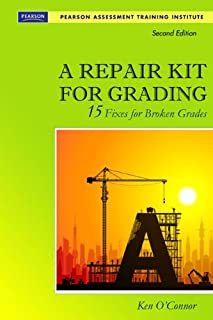
A Repair Kit for Grading: 15 Fixes for Broken Grades
Ken O'Connor (Pearson Education, 2011)
This book introduces 15 different “fixes” schools can make to ensure their grading practices are fair, equitable, and reliable.
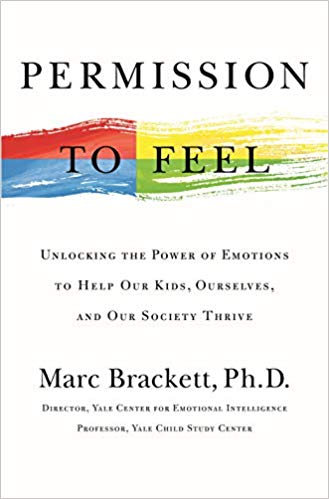
Permission to Feel: Unlocking the Power of Emotions to Help Our Kids, Ourselves, and Our Society Thrive
Marc Brackett (Celadon Books, 2019)
Our emotional state steers everything in our lives. Yet most children and adults have not learned the skills to deal with our emotions. This book provides a five-step process to identify and address emotions.
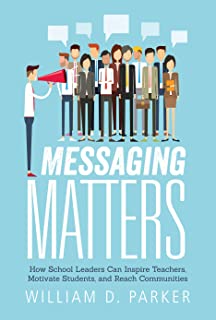
Messaging Matters: How School Leaders Can Inspire Teachers, Motivate Students, and Reach Communities
William D. Parker (Solution Tree Press, 2018)
School leaders have a unique platform that others do not – use it to proactively communicate positive messages to students, teachers, parents, and the community! This book shows you how.
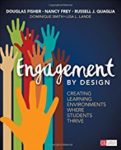
Engagement by Design: Creating Learning Environments Where Students Thrive
Douglas Fisher, Nancy Frey, Russell Quaglia, Dominique Smith, and Lisa Lande (Corwin, 2018)
This book shows teachers how to increase student engagement—and therefore achievement—by focusing on relationship building, teacher clarity, and student challenge. Click here for free PPT workshop and Teacher Handout
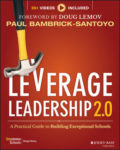
Leverage Leadership 2.0: A Practical Guide to Building Exceptional Schools
Paul Bambrick-Santoyo (Jossey-Bass, 2018)
The most exceptional school leaders succeed because of how they use their time – by spending it on what matters most: instructional and cultural leadership. This book outlines the 7 most important skills of instructional leadership.
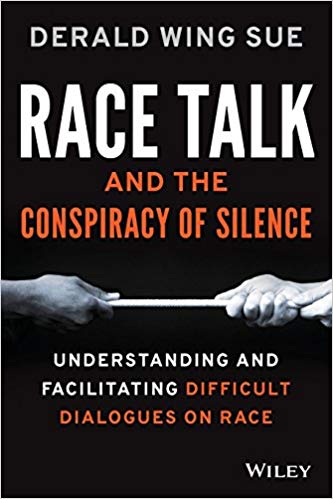
Race Talk and the Conspiracy of Silence: Understanding and Facilitating Difficult Dialogues on Race
Derald Wing Sue (Wiley, 2015)
This book provides practical strategies for conducting race conversations in ways that move the discussion, and our society, forward.
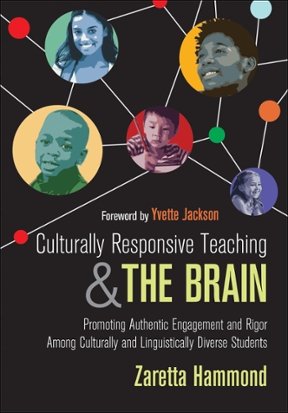
Culturally Responsive Teaching and the Brain
Zaretta Hammond (Corwin Press, 2015)
Teachers need to create classrooms that combines their cultural awareness with positive relationships, challenging content and a supportive learning environment. This book shows how.
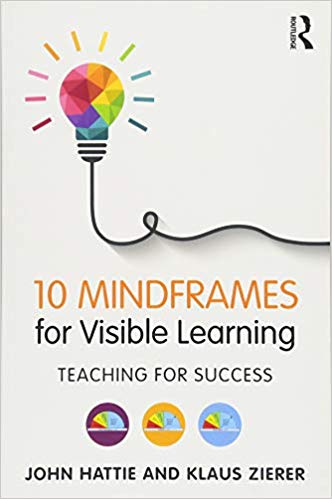
10 Mindframes for Visible Learning: Teaching for Success
John Hattie and Klaus Zierer (Routledge, 2018)
This book describes the ten mindsets of successful, high-impact teachers.
Click here for: PD Ideas to Develop Teacher Mindsets
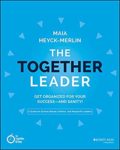
The Together Leader: Get Organized for Your Success–and Sanity!
Maia Heyck-Merlin (Jossey-Bass, 2016)
This book provides the tools and routines so busy school leaders can become truly organized, planned, and intentional.
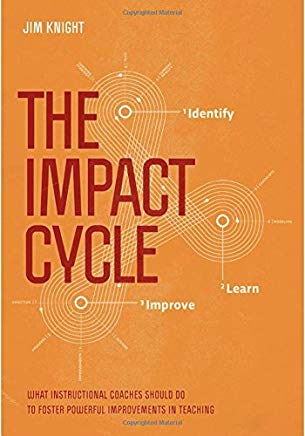
The Impact Cycle: What Instructional Coaches Do to Foster Powerful Improvements in Teaching
Jim Knight (Corwin Press, 2018)
The “Impact Cycle” is a 3-stage process instructional coaches use with teachers to improve teaching and learning.
Click here for: PD Ideas for Instructional Coaches
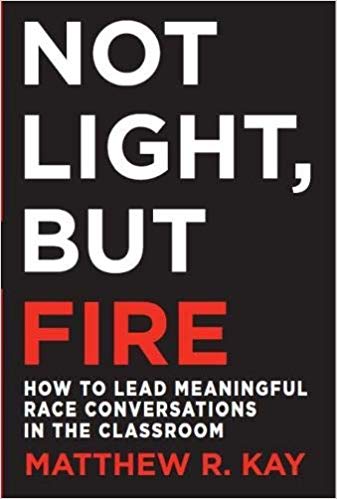
Not Light, But Fire: How to Lead Meaningful Race Conversations in the Classroom
Matthew R. Kay (Stenhouse Publishers, 2018)
It’s time for deeper conversations around race in the classroom. This book moves beyond why we need to talk about race and shows teachers how to do it.
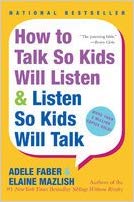
How to Talk So Kids Will Listen and Listen So Kids Will Talk
Adele Faber and Elaine Mazlish (Quill, 1982)
This bestselling book describes common problems parents have with their children and provides clearly described strategies and language parents can use to make their relationship with their children more rewarding and less stressful.
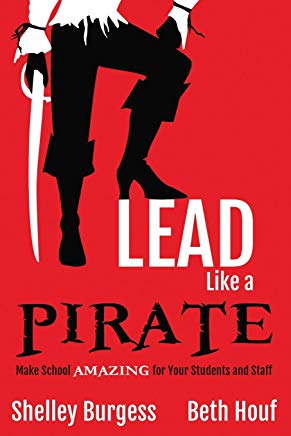
Lead Like a PIRATE: Make School Amazing for Your Students and Staff
Shelley Burgess and Beth Houf (Dave Burgess Consulting, Inc., 2017)
This book helps school leaders tap into the passion and enthusiasm they felt when they entered the field so they can do the important work of transforming the lives of students, communities, and generations to come.
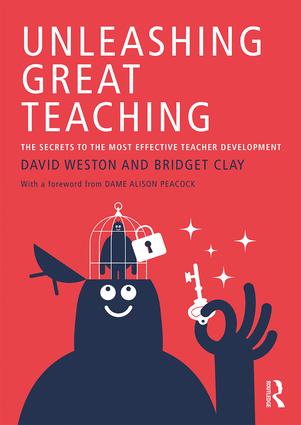
Unleashing Great Teaching: The Secrets to the Most Effective Teacher Development
David Weston and Bridget Clay (Routledge, 2018)
This book highlights three often-ignored aspects of professional learning: that it should be differentiated, happen in a cycle, and be evaluated.

Onward: Cultivating Emotional Resilience in Educators
Elena Aguilar (Jossey-Bass, 2018)
Educators are struggling from the stresses of the job and burning out. This book helps educators develop the resiliency skills to feel more fulfilled, remain in the job longer, and be more effective.
Click here for PD Ideas to Help Teachers Improve their SEL Skills and Handout for PD
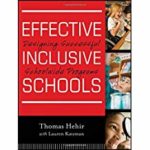
Effective Inclusive Schools: Designing Successful Schoolwide Programs
Thomas Hehir and Lauren Katzman (Jossey-Bass, 2012)
This book shows how leaders with strong visions for special education can influence and empower their staff. When done well, inclusion benefits students with and without disabilities.
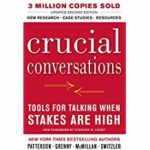
Crucial Conversations: Tools for Talking When Stakes Are High
Kerry Patterson, Joseph Grenny, Ron McMillan, and Al Switzler (McGraw Hill, 2012)
Much of the school leader’s job involves crucial conversations: when opinions vary, stakes are high, and emotions run strong. This book helps leaders conduct tough talks without damaging relationships.
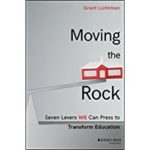
Moving the Rock: Seven Levers WE Can Press to Transform Education
Grant Lichtman (Jossey-Bass, 2017)
Unfortunately, education is stuck in the past. This book introduces seven levers of change to help us unstick education and move forward.
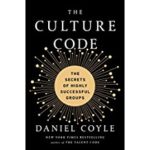
The Culture Code: The Secrets of Highly Successful Groups
Daniel Coyle (Bantam Books, 2018)
Great cultures can be built. This book shares the 3 key skills that organizations with extraordinary cultures have mastered – building safety, sharing vulnerability, and establishing purpose.
Click here for: Discussion Questions & PD Ideas for The Culture Code
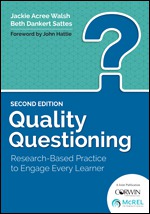
Quality Questioning: Research-Based Practice to Engage Every Learner
Jackie Acree Walsh and Beth Dankert Sattes (Corwin Press, 2017)
Classroom questioning has the potential to powerfully focus attention, boost cognition, and foster learning. To reap the instructional benefits of questioning, teachers need to plan ahead and be deliberate in their creation of questions, implementation, and follow-up. Click here for free PPT workshop
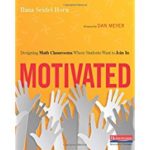
Motivated: Designing Math Classrooms Where Students Want to Join In
Ilana Seidel Horn (Heinemann, 2017)
Because secondary mathematics classrooms can be socially risky places, students are not participating in a way that deepens their mathematical thinking. This book provides a framework to help math teachers create the type of classroom climate in which students feel comfortable fully engaging in deep mathematical thinking.
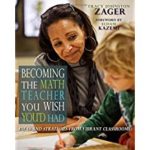
Becoming the Math Teacher You Wish You’d Had: Ideas and Strategies from Vibrant Classrooms
Tracy Johnston Zager (Stenhouse Publishers, 2017)
Real mathematicians describe math as playful, creative, and absorbing and yet students experience math in school as boring, stressful, and useless. The goal of the book is to close the gap between how math is taught in schools and math as it really is by providing teachers with a deeper understanding and appreciation of the world of mathematics.
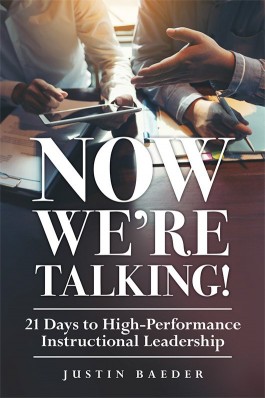
Now We’re Talking! 21 Days to High-Performance Instructional Leadership
Justin Baeder (Solution Tree, 2018)
The instructional leadership model introduced in this book relies on daily classroom visits as a way to gather enough information from the front lines to make the most informed instructional and operational decisions. The goal is not to supervise individual teachers into better performance. Instead, this model is about gathering information and sharing it with teachers through evidence-based conversations so they can reflect and make the best decisions about their own practice.
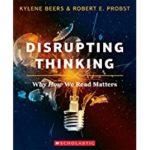
Disrupting Thinking: Why HOW We Read Matters
Kylene Beers and Robert E. Probst (Scholastic, 2017)
The way we teach reading is not only killing reading, but it is creating a generation of apathetic readers who have not learned how to engage in deep thinking. To avert our democracy’s impending crisis – lacking the literate and responsible citizens upon which we depend – we need to teach our students to be responsive, responsible, and compassionate readers.
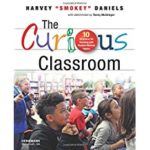
The Curious Classroom: 10 Structures for Teaching with Student-Directed Inquiry
Harvey "Smokey" Daniels (Heinemann, 2017)
Students will engage more deeply in their learning if we organize instruction around their curiosities and interests. This book shows you how to do just that by presenting 10 structures to help gradually introduce student-driven inquiry. Click here for free PPT workshop
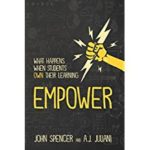
Empower: What Happens When Students Own Their Learning
John Spencer and A.J. Juliani (IMPress Books, 2017)
The most powerful we can do in schools is to shift our mindset from compliance (students must follow our rules) and engagement (getting kids excited about our chosen content, curriculum, and activities) to empowerment.
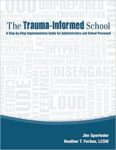
The Trauma-Informed School: A Step-by-Step Implementation Guide for Administrators and School Personnel
Jim Sporleder and Heather T. Forbes (Beyond Consequences Institute, 2016)
This book shows how a team of staff members can put structures into place to address help change lives of trauma to lives of hope and resilience, one relationship at a time.
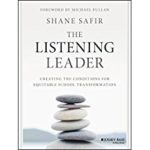
The Listening Leader: Creating the Conditions for Equitable School Transformation
Shane Safir (Jossey-Bass, 2017)
While principals may have many of the skills needed to be an instructional leader—creating curricula, observing teachers, running professional learning—they may lack a road map for working with adults. This book provides that road map. This book shows how leaders can use listening—as both a skill and a mindset—as a powerful tool to transform their schools.
Click here for accompanying: PD Ideas to Develop Listening Leaders
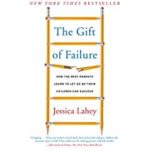
The Gift of Failure: How the Best Parents Learn to Let Go So Their Children Can Succeed
Jessica Lahey (Harper, 2016)
Our overprotective parenting style in which we do anything to prevent our children from failure actually backfires by preventing children from developing the autonomy and skills they need to succeed. This book shows parents how to let go so their children can fail, learn, and become independent.
Click here for: DISCUSSION QUESTIONS FOR USE WITH THE GIFT OF FAILURE
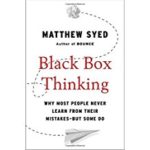
Black Box Thinking: Why Most People Never Learn From Their Mistakes—But Some Do
Matthew Syed (Portfolio/Penguin, 2015)
This book is about how, as individuals and organizations, we respond to and learn from failure. Success can only happen when we admit our mistakes, learn from them, and create a culture in which it is safe to fail.
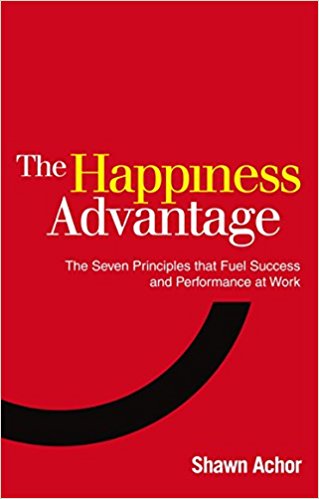
The Happiness Advantage: The Seven Principles That Fuel Success and Performance at Work
Shawn Achor (Virgin Publishing, 2011)
Conventional wisdom holds that if we work hard, we will be more successful, and if we are more successful then we will be happy. Recent discoveries in the field of positive psychology have shown that this formula is actually backward: Happiness fuels success.
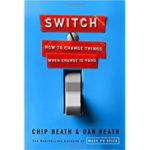
Switch: How to Change Things When Change is Hard
Chip Heath and Dan Heath (Broadway Books, 2010)
Humans are creatures of habit, yet they are tremendously capable of change. To break our habits and create change, we must be primed to: (1) recognize the need for change, (2) feel the need for change, and (3) be placed in an environment that allows change to occur.
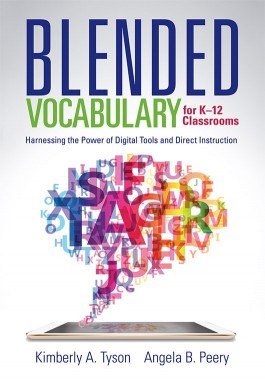
Blended Vocabulary for K-12 Classrooms: Harnessing the Power of Digital Tools and Direct Instruction
Kimberly A. Tyson and Angela B. Peery (Solution Tree Press, 2017)
The authors present an effective, research-based model of vocabulary acquisition with three key components. This book introduces a balanced approach to vocabulary learning – that integrates technology – so K-12 educators can implement a more thoughtful and systematic approach to vocabulary learning at their schools. Click here for free PPT workshop and Teacher Packet
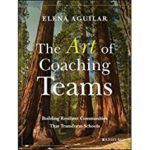
The Art of Coaching Teams: Building Resilient Communities That Transform Schools
Elena Aguilar (Jossey-Bass, 2016)
To truly transform schools, we need teams of highly functioning groups of teachers working together. This book provides the tools, tips, protocols, and theory needed to coach teams to become highly effective.
Click here for: PD Ideas to Develop Team Leaders and the Handout for Team Leader PD Session
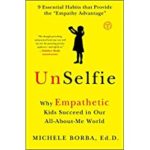
Unselfie: Why Empathetic Kids Succeed in Our All-About-Me World
Michele Borba (Touchstone, 2016)
Rather than being an add-on, ‘empathy’ is a vital skill for our students’ happiness, well-being, and success. Furthermore, empathy encompasses nine teachable habits that children use to help them navigate life’s challenges.
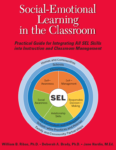
Social-Emotional Learning in the Classroom
William B. Ribas, Deborah A. Brady, and Jane Hardin (Ribas Publications, 2017)
The actions that teachers take every day can be used to develop social-emotional learning in students. Without introducing a new program, this book provides a practical guide for how teachers can develop social-emotional skills in their students within the regular classroom setting.
Click here for: PD IDEAS TO INTEGRATE SOCIAL-EMOTIONAL LEARNING
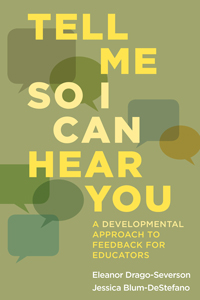
Tell Me So I Can Hear You: A Developmental Approach to Feedback for Educators
Eleanor Drago-Severson and Jessica Blum-DeStefano (Harvard Education Press, 2016)
Effective feedback is at least as important today as it has ever been, and maybe more so.
Therefore, it is critical to understand that feedback cannot be a one-size-fits-all endeavor; instead we need to consider adult developmental theory in our approach to feedback.
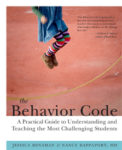
The Behavior Code: A Practical Guide to Understanding and Teaching the Most Challenging Students
Jessica Minahan and Nancy Rappaport (Harvard Education Press, 2012)
Often, educators’ typical responses to student misbehaviors—like punishments—trigger further inappropriate behaviors.
Instead, this very readable book advocates for understanding causes and patterns of difficult behaviors.
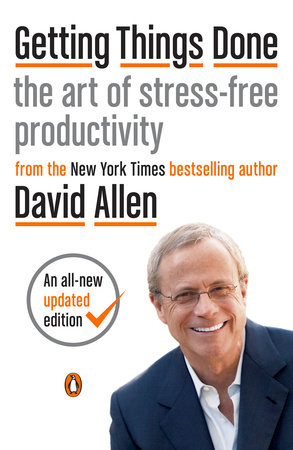
Getting Things Done: The Art of Stress-Free Productivity
David Allen (Penguin Books, 2015)
This book provides an organizational system that helps people with too much to do and too little time. The goal is not simply to help people get more done, but to do so in a way that decreases stress.
Click here for PD ideas to get yourself or your staff more organized: PD IDEAS FOR USE WITH THE BOOK
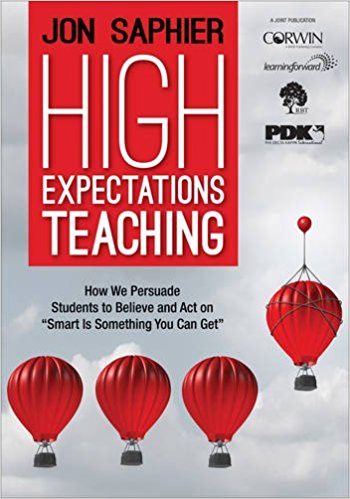
High Expectations Teaching: How We Persuade Students to Believe and Act on “Smart is Something You Can Get”
Jon Saphier (Corwin Press, 2017)
The primary determinant of any student’s academic success is effort. This is a “how-to” book that introduces 50 ways teachers should act and teach every day to help their students develop a growth mindset and a belief in the power of effort.
Click here for PD ideas to go along with the book: PD IDEAS TO HELP TEACHERS TEACH THE GROWTH MINDSET
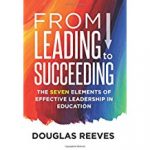
From Leading to Succeeding: The Seven Elements of Effective Leadership in Education
Douglas Reeves (Solution Tree Press, 2016)
This book presents seven essential elements of leadership that, according to research, lead to improved student performance. The seven elements are: purpose, trust, focus, leverage, feedback, change, and sustainability.
Click here for PD ideas to help leaders improve seven key aspects of leadership: PD IDEAS FOR USE WITH THE BOOK
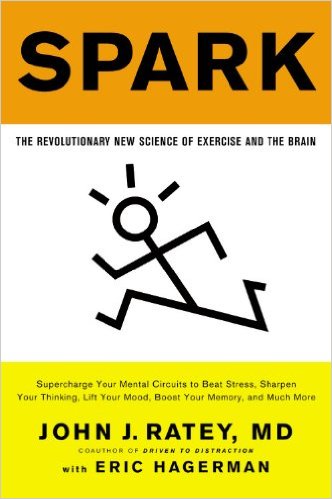
Spark: The Revolutionary New Science of Exercise and the Brain
John J. Ratey (Little, Brown and Company, 2013)
Exercise is the single most powerful tool you have for maximizing brain function. We all know the research that exercise is good for the body, but this book argues that the impact of exercise on the brain may be even more important than the impact on the body.
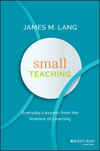
Small Teaching: Everyday Lessons from the Science of Learning
James M. Lang (Jossey-Bass, 2016)
“Small teaching” strategies, involving minor tweaks to lesson plans, can dramatically increase student learning. New findings in cognitive science, neurology and psychology have helped educators develop strategies that not only help students succeed in school, but also help them become lifelong learners. Click here for free PPT workshop
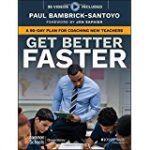
Get Better Faster: A 90-Day Plan for Coaching New Teachers
Paul Bambrick-Santoyo (Jossey-Bass, 2016)
After studying thousands of effective leaders, Bambrick-Santoyo learned what it takes to develop new teachers quickly. As a result, this book provides clear guidelines for HOW to coach newer teachers and WHAT to coach them on so they develop more rapidly into master teachers.

Evicted: Poverty and Profit in the American City
Matthew Desmond (Crown Publishers, 2016)
Eviction is a cause, not just a condition, of poverty in America. The lack of affordable housing is driving families to financial ruin and is one of the most important drivers of inequality in the nation today. Eviction is associated with heightened residential instability, substandard housing, declines in neighborhood quality, depression, and job loss. All of these issues deeply affect a number of students in our schools.

The Power of Teacher Rounds: A Guide for Facilitators, Principals, and Department Chairs
Vivan Troen and Katherine C. Boles (Corwin Press, 2014)
If we hope to move instructional practice forward, teachers need to work together and hold each other accountable at the school level. Teacher Rounds is an accessible yet powerful tool that engages teachers in school-based, professional learning to improve student achievement.
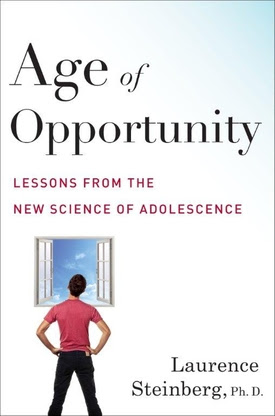
Age of Opportunity: Lessons From the New Science of Adolescence
Laurence Steinberg (Houghton Mifflin, 2014)
Adolescence is a second time when the brain is undergoing rapid growth and development. The key skill to develop in adolescence is strong self-control, which has been tied to markers of success: academic achievement, mental health and even success in relationships with others.
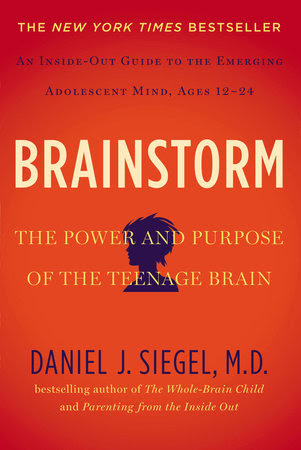
Brainstorm: The Power and Purpose of the Teenage Brain
Daniel J. Siegel (TarcherPerigee, 2013)
Rather than seeing adolescence as a stage to be endured, Siegel shows that it is a transformative period that lays the foundation for healthy adult lives. Siegel argues that we should embrace four features of adolescence that occur through healthy changes in the brain during this developmental stage and shows why these are critically important to developing rich and fulfilling lives.
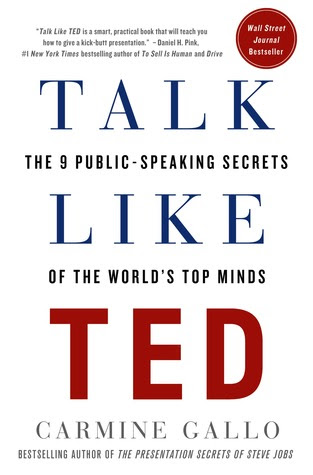
Talk Like TED: Tips for Powerful Presentations
Carmine Gallo (St. Martin's Griffin, 2015)
Powerful presentations can galvanize change. There are certain characteristics that create memorable and inspiring presentations.
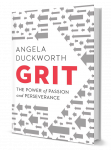
Grit: The Power and Passion of Perseverance
Angela Duckworth (Scribner, 2016)
Grit is a key trait found in extremely successful people across a wide variety of fields, and more importantly, it is something you can cultivate. The two main ingredients in grit are: perseverance and passion.
Click here for 3 sets of discussion questions (for teachers, leadership teams, and parents) to use with the book: DISCUSSION QUESTIONS FOR USE WITH GRIT

The Talent Code: Greatness Isn’t Born. It’s Grown. Here’s How.
Daniel Coyle (Bantam, 2009)
Coyle argues that talent is not something that springs from our genes. Instead, it is something that can be cultivated with a few key ingredients. This book shows you how to grow your talent with: deep practice, ignition, and master coaching.
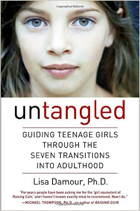
Untangled: Guiding Teen Girls Through the Seven Transitions Into Adulthood
Lisa Damour (Ballantine Books, 2016)
Although the lives of teenage girls seem to be a tangled mess, in fact, their development follows a predictable pattern. This book introduces the seven typical stages adolescent girls go through, how to deal with each, and when to worry.
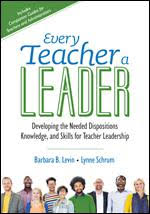
Every Teacher a Leader: Developing the Needed Dispositions, Knowledge, and Skills for Teacher Leadership
Barbara B. Levin and Lynne Schrum (Corwin, 2017)
This book helps to develop formal and informal teacher leaders at your school by outlining what they should know and be able to do.
Click here for accompanying PD ideas: PD IDEAS TO DEVELOP TEACHER LEADERSHIP
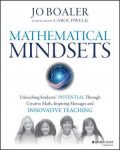
Mathematical Mindsets: Unleashing Students’ Potential Through Creative Math, Inspiring Messages and Innovative Teaching
Jo Boaler (Jossey Bass, 2016)
Too often, students fear math and have a distorted view of it. This results in a nationwide dislike of math and a widespread underachievement in it as well. To counter these damaging views, this book shows teachers how to encourage students to develop a more positive mathematical mindset: math is reachable, enjoyable, and is about thinking and sense making.
Click here for: THE MAIN IDEA’s PD Suggestions for Math Teachers
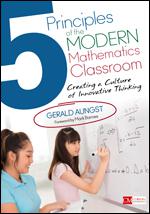
5 Principles of the Modern Mathematics Classroom: Creating a Culture of Innovative Thinking
Gerald Aungst (Corwin, 2016)
We must create mathematics classrooms in which problem solving occurs daily and is deeply embedded in the culture. The 5 principles presented in this book will guide teachers in creating a modern mathematics classroom that supports this type of culture.
Click here for accompanying PD ideas: PD Suggestions for Math Teachers
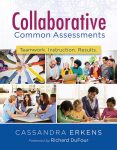
Collaborative Common Assessments: Teamwork. Instruction. Results.
Cassandra Erkens (Solution Tree Press, 2016)
Working in teacher teams to create and analyze common assessments dramatically improves learning for students and teachers alike.
Click here for PD ideas for the Collaborative Common Assessment process: PD IDEAS FOR USE WITH THE BOOK
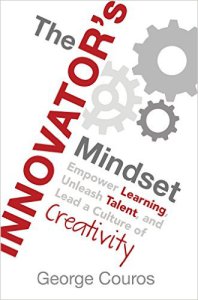
The Innovator’s Mindset: Empower Learning, Unleash Talent, and Lead a Culture of Creativity
George Couros (Dave Burgess Consulting, Inc., 2015)
Without innovation, organizations cease to exist. This book shows educational leaders how to foster the type of culture that leads to innovative opportunities that empower both students and educators to thrive.
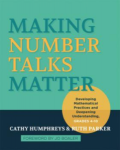
Making Number Talks Matter: Developing Mathematical Practices and Deepening Understanding
Cathy Humphreys and Ruth Parker (Stenhouse Publishers, 2015)
Without much planning, Number Talks are a great, short routine that help students develop number sense through mental math and explaining their reasoning. Because of the real focus on math concepts (not math procedures), this routine has helped dramatically change teaching and learning in math classrooms.
Click here for: THE MAIN IDEA’s PD Suggestions for Math Teachers
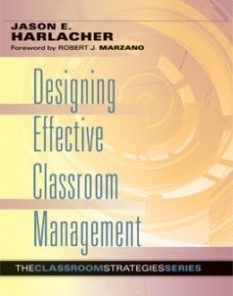
Designing Effective Classroom Management
Jason E. Harlacher (Marzano Research, 2015)
Because classroom management is vital for student achievement and teacher retention, teachers should be using research-based practices to guide their approach to classroom management. This book outlines five research-backed practices in a clear and practical way so schools can set up proactive, positive systems of classroom management. Click here for free PPT workshop
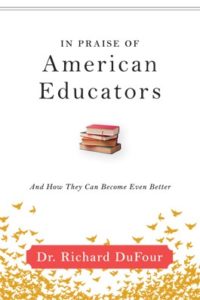
In Praise of American Educators: And How They Can Become Even Better
Richard DuFour (Solution Tree Press, 2015)
The current tendency to blame teachers and schools is extremely misguided. In fact, educators have made unprecedented strides in student learning over the past three decades. DuFour shows us how implementing PLCs is the best way to give educators the support they need to continue to improve student learning, ensuring that all students are prepared to succeed in today’s economy.
Click here for accompanying PD ideas: PD IDEAS FOR USE WITH THE BOOK

In the Best Interest of Students: Staying True to What Works in the ELA Classroom
Kelly Gallagher (Stenhouse Publishers, 2015)
Educators have become so hung up on covering all of the Common Core standards, that they have lost sight of the key literacy skills our students need. Gallagher’s goal is not to help us fall in line with the latest fad, but to encourage us to think deeply about those literacy practices (reading, writing, speaking, and listening) that stand the test of time and truly help our students succeed as thoughtful, literate, people prepared for the modern world.
Click here for: PD IDEAS FOR IMPLEMENTING LITERACY AND THE COMMON CORE

Blended: Using Disruptive Technology to Improve Schools
Michael B. Horn and Heather Staker (Jossey-Bass, 2015)
This book is about the tremendous potential of using blended learning to bring education into the 21st century to improve learning for all. It provides both the theory and the practical strategies to show us how blended learning makes learning more student-centered and real-world while also making teaching more engaging and fulfilling at the same time.

Creating Cultures of Thinking: The 8 Forces We Must Master to Truly Transform Schols
Ron Ritchhart (Jossey-Bass, 2015)
This book shows how to transform our schools and classrooms into places of true learning and thinking. The key to this transformation lies in the culture, and the book outlines the eight forces that shape that culture.
Click here for PD ideas to cultivate a culture of thinking: PD IDEAS FOR USE WITH THE BOOK

The Mindful School Leader: Practices to Transform Your Leadership and School
Valerie Brown and Kirsten Olson (Corwin Press, 2015)
School leaders face unprecedented challenges as they lead complex and unpredictable organizations. Mindfulness helps leaders respond more productively to the stress of dealing with these challenges. The result? They become more effective leaders and calmer and more focused people at the same time.

Go Blended! A Handbook for Blending Technology in Schools
Liz Arney (Jossey-Bass, 2015)
Blended learning is a powerful, purposeful model in which schools use technology to improve learning. In this model, technology is a tool, not an end in itself. Blended learning integrates – or blends – computer-based learning with more individualized classroom instruction in which students work independently or in groups with the teacher. This book helps school leaders – and you don’t need to be a technological expert – to lead the effort to go blended at your school.
Click here for PD ideas to begin to launch blended learning in your school: PD IDEAS TO INTRODUCE BLENDED LEARNING

Bringing Homework Into Focus: Tools and Tips to Enhance Practices, Design, and Feedback
Eileen Depka (Solution Tree Press, 2015)
Homework is often assigned out of habit, rather than as a thoughtful assignment. Research shows that homework can have a positive impact on student performance, if we design it well. This book helps teachers learn how to maximize the impact of homework.
Click here for workshop ideas to improve HW practices: PD IDEAS – Facilitator’s Agenda and The Main Idea’s Teacher Handout for HW PD
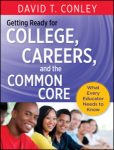
Getting Ready for College, Careers, and the Common Core
David T. Conley (Jossey Bass, 2014)
The Common Core is an important step on the path to college and career readiness; it is not just a passing fad. However, the standards alone are not enough. To prepare students for college and career readiness, schools need to teach a wider range of skills and knowledge encapsulated in Conley’s nationally known “Four Keys to College and Career Readiness.” This book provides a framework to organize classrooms, schools, and systems around the goal of college and career readiness.
Click here for PD ideas to help teachers better prepare students for college and careers: PD IDEAS FOR USE WITH THE BOOK

Thanks for the Feedback: The Science and Art of Receiving Feedback Well
Douglas Stone and Sheila Heen (Penguin Books, 2014)
We receive a deluge of feedback – from bosses, colleagues, friends, family – yet it rarely improves performance. The problem is that we’ve focused all of our attention and training on the feedback giver. Instead, it is the feedback receiver who decides whether to make use of the feedback and improve. This book takes a different approach by showing the feedback receiver how to best learn from feedback (even when it is off base, unfair, poorly delivered, and, frankly, you’re not in the mood).

Teach Like a Champion 2.0: 62 Techniques that Put Students on the Path to College
Doug Lemov (Jossey-Bass, 2014)
Like the first edition of this book, Teach Like a Champion 2.0 is based on the premise that great teaching can be learned. To help teachers improve their craft, this book categorizes, describes in detail, and names the techniques used by top teachers.

Trust Matters: Leadership for Successful Schools
Megan Tschannen-Moran (Jossey-Bass, 2014)
Trust is the key to just about everything in schools, and yet principals often don’t prioritize it. This book shows principals how to be intentional and strategic about building trust among teachers, students, and families.

Designing and Implementing Effective Professional Learning
John Murray (Corwin Press, 2014)
Research shows that traditional PD (one-shot workshops, outside experts) is simply not effective in improving student learning. This book introduces eight of the most powerful forms of PD along with ideas for how to implement them.
Click here for accompanying PD ideas: PD IDEAS FOR USE WITH THE BOOK

Leaders of Their Own Learning: Transforming Schools Through Student-Engaged Assessment
Ron Berger, Leah Rugen, and Libby Wooden (Jossey-Bass, 2014)
This book presents a novel approach to assessment in which students are actively involved in understanding and monitoring their own growth and learning. By increasing student motivation and engagement, this student-centered system of assessment helps students raise their achievement and meet the Common Core.
Click here for: PD Ideas for Implementing Student-Engaged Assessment

The Principal: Three Keys to Maximizing Impact
Michael Fullan (Jossey-Bass, 2014)
It may seem shocking to consider that the role of principal as direct instructional leader is not the solution. Instead, Fullan argues for the need to reconceptualize the role so the principal becomes a force for improving the whole school.

Strengthening Teacher Evaluation: Taking Action to Improve Ineffective Instruction
Alexander D. Platt and Caroline E. Tripp (Ready About Press, 2014)
The authors take what they have learned from studying skillful leaders to show you how to effectively evaluate teachers to help them improve their teaching. This book is a resource that provides concrete advice about collecting data on teacher performance, diagnosing teachers’ problems, communicating those problems to teachers, and designing interventions.
Click here for accompanying PD ideas: PD IDEAS FOR USE WITH THE BOOK

Collaborating for Success With the Common Core
Kim Bailey, Chris Jakicic, and Jeanne Spiller (Solution Tree Press, 2014)
This book presents a thoughtful approach to the CCSS. Schools can be more effective and humane in their approach to the standards if teachers tackle them in collaborative teams. This book will help teams understand, plan, pace, assess, and teach the CCSS.
Click here for accompanying PD ideas to implement the CCSS: PD IDEAS FOR USE WITH THE BOOK

Fear Your Strengths: What You Are Best at Could Be Your Biggest Problem
Robert E. Kaplan and Robert B. Kaiser (Berrett-Koehler, 2013)
Leaders often believe that the path to improvement involves strengthening their weaknesses. However, it is your strengths that often work against you when they are overused. In fact, they can be quite destructive. This book helps you maximize your leadership strengths without going overboard.
Click here for accompanying PD Ideas: PD Suggestions & Discussion Questions for Leadership Development

Reading Without Limits: Teaching Strategies to Build Independent Reading for Life
Maddie Witter (Jossey-Bass, 2013)
This book introduces an approach to reading that leads to high levels of achievement and a love of reading. This approach consists of a comprehensive set of 12 rigorous, research-based practices for teaching reading that work with any grade level and with any current reading program a school is using.

Sticks and Stones: Defeating the Culture of Bullying and Rediscovering the Power of Character and Empathy
Emily Bazelon (Random House, 2013)
To address bullying, we need to understand that it is a nuanced issue with many shades of gray. This book provides the type of detailed picture of bullying we need – by sharing three students’ stories of bullying – to better understand it, prevent it, and help kids get through it.

The Smartest Kids in the World: And How They Got That Way
Amanda Ripley (Simon & Schuster, 2013)
Why do some students learn so much and others so little? Amanda Ripley looks to a different kind of expert to answer this question. She follows American teenagers as they attend a year of high school in three top-scoring countries in order to learn about their educational systems.

School Systems That Learn: Improving Professional Practice, Overcoming Limitations, and Diffusing Innovation
Paul B. Ash and John D'Auria (Corwin Press, 2013)
Currently, the challenge for many schools is to get all students to achieve at high levels. To address this problem, the authors propose creating a learning school system to increase educator capacity so that all students can achieve at high levels.

Summer Reading: Closing the Rich/Poor Reading Achievement Gap
(Teachers College Press, 2013)
“Summer reading loss” is when students’ reading skills backslide during the summer when students are not in school. This is a serious issue. This short piece shares nine findings about summer reading loss and provides ten research-based suggestions to address it.
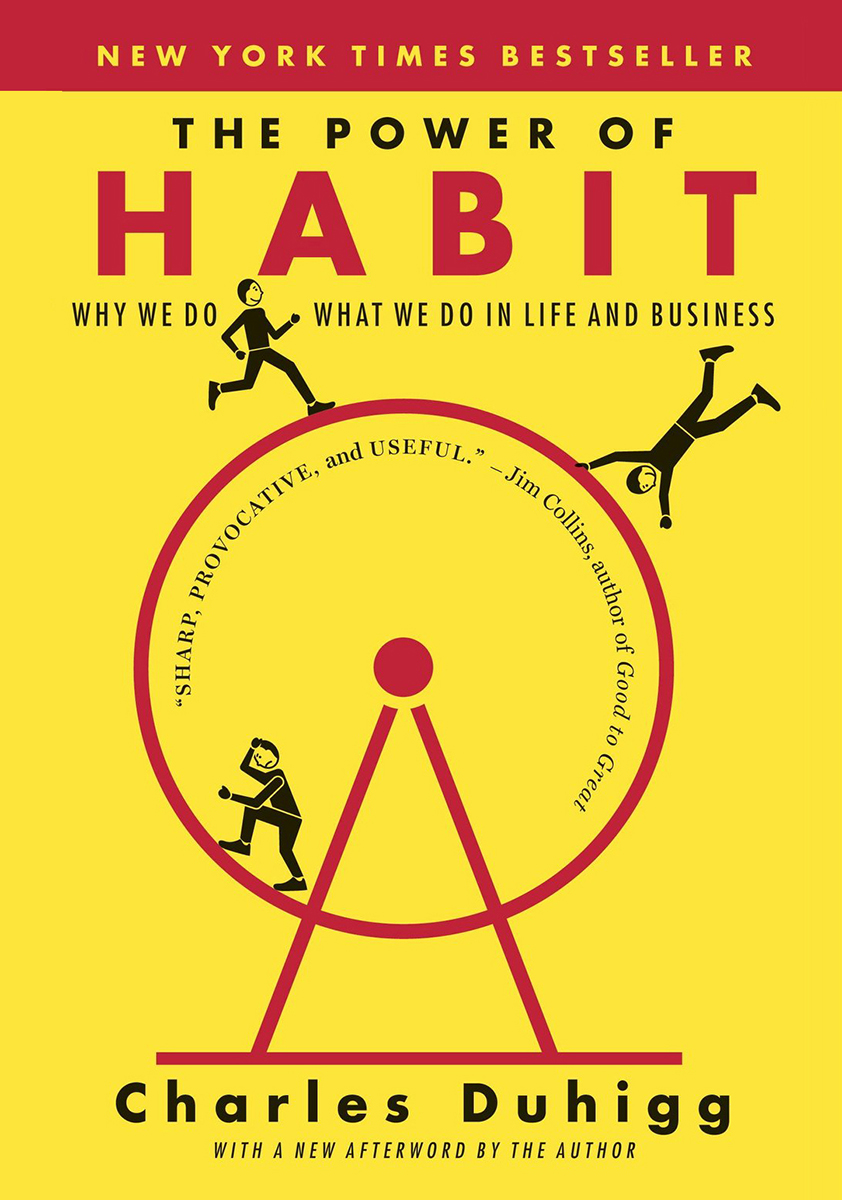
The Power of Habit: Why We Do What We Do in Life and Business
Charles Duhigg (Random House, 2012)
Most of what we do each day is not the result of decision-making, but rather of habits. Habits can be changed and developed if we understand how they work. This New York Times bestseller has important implications for schools, educators, and students.

Common Core Mathematics in a PLC at Work, Leader’s Guide
Timothy D. Kanold and Matthew R. Larson (Solution Tree Press, 2012)
This book helps mathematics leaders focus their time and effort on the five high-impact actions that will most translate into student learning and ensure that students meet the Common Core State Standards in mathematics.
Click here for PD ideas for math leaders and math teams: PD IDEAS FOR USE WITH THE BOOK

Practice Perfect: 42 Rules for Getting Better at Getting Better
Doug Lemov, Erica Woolway, and Katie Yezzi (Jossey-Bass, 2012)
This book is about the transformative power of practice to improve skills. Most educators think practice works well for a basketball team, but not for them. However, the authors introduce 42 rules to make practice more effective and suggest that this may be the missing ingredient needed to help teachers meet the increasing demands in education today.

Coaching Matters
Joellen Killion, Cindy Harrison, Chris Bryan, and Heather Clifton (Learning Forward, 2012)
Coaching has the potential to transform teaching and learning if the right conditions, structures, and supports are in place. This book not only describes the attributes of effective coaching programs, but it provides the tools and strategies to help you build a stronger coaching program.
Click here for accompanying PD ideas: PD IDEAS FOR USE WITH THE BOOK

The Together Teacher: Plan Ahead, Get Organized, and Save Time!
Maia Heyck-Merlin (Jossey-Bass, 2012)
While there are many books about organization and time management, this book is designed for the unique challenges of teachers. This book provides useful tools, templates, and ideas for changing habits so teachers can focus more on student achievement and still lead a balanced life.

Visible Learning for Teachers: Maximizing Impact on Learning
John Hattie (Routledge, 2012)
Hattie conducted the biggest-ever research project in education and can tell us what actually works in schools to improve student learning. He helps us learn from this substantial research in order to decide what to implement in schools.

Leverage Leadership: A Practical Guide to Building Exceptional Schools
Paul Bambrick-Santoyo (Jossey-Bass, 2012)
This is the Good to Great for educational leaders. Bambrick-Santoyo outlines 7 areas of school leadership that drastically improve student learning, and then he gives you the tools and describes the precise leadership actions you need to take in order to adopt them.

How Children Succeed: Grit, Curiosity, and the Hidden Power of Character
Paul Tough (Houghton Mifflin Harcourt, 2012)
Tough asks why some kids succeed while others fail. He spent three years researching this question and found that the problem is that we overemphasize cognitive skills. The key is to help children develop character.
Click here for two sets of discussion questions (to use with parents/caregivers and teachers): DISCUSSION QUESTIONS TO USE WITH HOW CHILDREN SUCCEED

Making Thinking Visible: How to Promote Engagement, Understanding, and Independence for All Learners
Ron Ritchhart, Mark Church, and Karin Morrison (Jossey-Bass, 2011)
Many teachers focus more on having students complete tasks and assignments than on developing their thinking and understanding. This book shows teachers how to promote thinking in their classrooms by: (1) creating opportunities for their students to think and (2) making students’ thinking visible.
Click here for: PD Ideas to Help Teachers Develop Student Thinking

Embedded Formative Assessment
Dylan Wiliam (Solution Tree Press, 2011)
Research shows that when teachers use formative assessment students make twice as much progress! This book not only shares the research, but it includes practical formative assessment strategies for teachers in all grades, K-12.
Click here for: Formative Assessment PD & Teacher Packet

Leaders of Learning: How District, School, and Classroom Leaders Improve Student Achievement
Richard DuFour and Robert J. Marzano (Solution Tree Press, 2011)
Leaders at all levels – from the classroom to the district – can work collaboratively to continually improve their practice and apply research-based practices to improve student achievement.
Click here for: Discussion Questions for a Leadership Team

Academic Conversations: Classroom Talk That Fosters Critical Thinking and Content Understandings
Jeff Zwiers and Marie Crawford (Stenhouse Publishers, 2011)
Teachers have rarely been trained to teach speaking and listening skills. However, these vital skills should be taught in all grades and subjects. Not only are they needed for the Common Core and higher education, but employers are demanding better communication skills as well.
Click here for accompanying PD ideas: PD IDEAS FOR USE WITH THE BOOK

Change Leader: Learning to Do What Matters Most
Michael Fullan (Jossey-Bass, 2011)
This renowned expert in organizational change brings together insights from a wide variety of fields to help school leaders understand the seven core leadership practices needed for today’s world.
Click here for DISCUSSION QUESTIONS FOR USE WITH THE BOOK

Working with Difficult & Resistant Staff
John F. Eller and Sheila A. Eller (Solution Tree Press, 2011)
Principals often lose countless hours working with difficult staff members only to find that nothing has changed. This book describes eight different types of difficult staff behaviors and how school leaders can learn to address these issues in more productive ways.

Student-Centered Leadership
Viviane Robinson (Jossey-Bass, 2011)
This book helps school leaders reflect on their practice and the changes, even small ones, that will improve student outcomes. The five research-based leadership practices discussed in the book will help leaders have a bigger impact on the achievement of their students.

Effective Supervision: Supporting the Art and Science of Teaching
Robert J. Marzano, Tony Frontier, and David Livingston (ASCD, 2011)
This book helps school leaders improve their approach to teacher supervision. It describes the Marzano Evaluation Model which includes five research-based components needed for effective supervision.

Elements of Grading: A Guide to Effective Practice
Douglas Reeves (Solution Tree Press, 2011)
Reeves points out that many of our grading practices are not only inaccurate but harmful as well. This book shares simple strategies to improve grading methods so they can be more accurate, fair, specific, and timely.
Click here for PD ideas to improve grading: PD IDEAS FOR USE WITH THE BOOK Click here for: 3 Methods to Collaboratively Score Student Work

The Highly Engaged Classroom
Robert J. Marzano and Debra J. Pickering with Tammy Heflebower (Marzano Research Laboratory Powered by Solution Tree, 2011)
School leaders no longer have to rely on vague feedback like: “The students were not engaged.” Instead, using the book’s 4-part definition of engagement and the 40 strategies to increase engagement, school leaders can have a much richer toolbox to help teachers increase student engagement. Click here for free PPT workshop

Focus: Elevating the Essentials to Radically Improve Student Learning
Mike Schmoker (ASCD, 2011)
Schmoker argues that schools don’t prepare students for college because they adopt every new educational fad and have lost their core focus. Instead, we need to sweep all of those reforms aside and focus back on what is important to student learning: a coherent curriculum, sound instruction, and authentic literacy.

Creating a Digital-Rich Classroom: Teaching & Learning in a Web 2.0 World
Meg Ormiston (Solution Tree Press, 2011)
This book provides practical strategies to integrate technology into instruction in order to increase student engagement and achievement. See the technology PD workshop ideas from The Main Idea below.
For technology PD ideas click here: Technology Workshop Ideas

Differentiation and The Brain: How Neuroscience Supports the Learner-Friendly Classroom
David A. Sousa and Carol Ann Tomlinson (Solution Tree Press, 2011)
How can teachers possibly address the great variety of learning needs in their classes? The top thinkers on differentiation and neuroscience show us how to create differentiated classrooms, backed by brain research, to address the wide variety of student needs in our classrooms.
Click here for accompanying PD ideas: PD IDEAS TO REFLECT ON AND IMPLEMENT DIFFERENTIATION STRATEGIES

Schools for All Kinds of Minds: Boosting Student Success by Embracing Learning Variation
Mary-Dean Barringer, Craig Pohlman, and Michele Robinson (Jossey-Bass, 2010)
Based on the work of the organization All Kinds of Minds, this book shows that schools can be more effective in addressing students’ chronic learning struggles by focusing on students’ strengths. Neuroscience has a lot to teach educators about the way students learn, and we can use this knowledge to address the behavioral and learning needs of all our students.

The Global Achievement Gap: Why Even Our Best Schools Don’t Teach the New Survival Skills Our Children Need — And What We Can Do About It
Tony Wagner (Basic Books, 2010)
Regardless of how good your school’s test scores are, you still have a lot of work to do to prepare your students for success in college and the world of work. Learn about the “Seven Survival Skills” Wagner claims even the best schools are not teaching. Use the accompanying book group questions below to engage your staff in the important discussion about preparing our students for the 21st century.

Leading School Turnaround: How Successful Leaders Transform Low-Performing Schools
Kenneth Leithwood, Alma Harris, and Tiiu Strauss (Jossey-Bass, 2010)
This book describes how to substantially improve an underperforming school and sustain those gains. It outlines the practices and behaviors exercised by leaders of successful turnaround schools.

Teaching the iGeneration: 5 Easy Ways to Introduce Essential Skills With Web 2.0 Tools
William M. Ferriter and Adam Garry (Solution Tree Press, 2010)
This book shows how to use digital tools not just for the sake of including technology, but in order to teach important 21st century skills — information fluency, persuasion, communication, collaboration, and problem solving. See the technology PD workshop ideas from The Main Idea below.
Click here for: Technology Workshop Ideas

Organization Made Easy! Tools For Today’s Teachers
Frank Buck (Eye on Education, 2010)
A lack of strong organizational skills seriously threatens our ability to address the needs of students. This book provides strategies to help us improve the organization of our paperwork, tasks, appointments, computer and email use. It is aimed at teachers but much of it is applicable to the school leader.

Teach Like a Champion: 49 Techniques That Put Students on the Path to College
Doug Lemov (Jossey-Bass, 2010)
Lemov carefully observed teachers whose inner-city students perform at dramatically high levels. Then he broke down what they do into carefully described techniques that all teachers can put into practice. The accompanying DVD also helps to clearly illustrate what these techniques look like – a resource sorely needed by the teaching profession.

Driven by Data: A Practical Guide to Improve Instruction
Paul Bambrick-Santoyo (Jossey-Bass, 2010)
Bambrick-Santoyo shows how data-driven instruction, if implemented well, can significantly impact student performance. He clearly the describes the 4 essential components: assessment, analysis, action, and a data-driven culture. The second part of the book (over 50 pages!) contains workshops to train staff in effectove data-driven methods.

Readicide: How Schools Are Killing Reading and What You Can Do About It
Kelly Gallagher (Stenhouse Pubishers, 2009)
Ironically, many of the practices teachers employ to improve reading are actually contributing to the death of reading among our students. This short and humorous read will help educators consider the types of strategies that will reverse this trend.

Becoming a Learning School
Joellen Killion and Patricia Roy (National Staff Development Council, 2009)
This book shows how to implement collaborative professional learning – a form of PD in which teams of teachers work collaboratively to improve student learning. To train staff to work in collaborative teams, there is an accompanying CD-ROM with tons of tools.

Accessible Mathematics: 10 Instructional Shifts That Raise Student Achievement
Steven Leinwand (Heinemann, 2009)
Math teachers leave too many students behind by continuing to teach math the way they’ve always taught it. Without having to buy new books or a new program, Leinwand shows how we can improve mathematical thinking and student achievement by making 10 key instructional changes.
PD IDEAS TO INTRODUCE THE 10 INSTRUCTIONAL SHIFTS TO TEACHERS: PD IDEAS FOR USE WITH THE BOOK

Rethinking Teacher Supervision and Evaluation: How to Work Smart, Build Collaboration, and Close the Achievement Gap
Kim Marshall (Jossey-Bass, 2009)
Our current method of supervising and evaluating teachers does NOT lead to student achievement. Marshall proposes a powerful new approach that will. His model involves 4 components: mini-observations, interim assessments, “backwards” planning, and teacher evaluation rubrics.
Click here for accompanying PD ideas: PD IDEAS FOR USE WITH THE BOOK

Designing & Teaching Learning Goals & Objectives
Robert J. Marzano (Solution Tree Press, 2009)
Dr. Marzano is at the forefront of educational research on best instructional strategies. In this book he takes the research on learning goals and translates it into practical suggestions for teachers to implement learning goals that actually improve student achievement.
Click here for accompanying PD ideas: PD IDEAS FOR USE WITH THE BOOK

Shaping School Culture: Pitfalls, Paradoxes, & Promises – Second Edition
Terrence E. Deal and Kent D. Peterson (Jossey-Bass, 2009)
A school’s culture affects every part of the school. This book is a classic on school culture and the authors are experts on organizational culture. They pull together the best of what is known about culture in both education and business to help school leaders develop a repertoire of ways to improve school culture.

A School Leader’s Guide to Excellence
Carmen Fariña and Laura Kotch (Heinemann, 2008)
These two seasoned and warm school leaders from NYC show educational leaders how to raise student performance in a refreshingly humane and respectful way. This book is both inspirational and down-to-the-smallest-detail practical.
Click here for accompanying PD ideas: PD IDEAS FOR USE WITH THE BOOK

Rigor is NOT a Four-Letter Word
Barbara R. Blackburn (Eye on Education, Inc., 2008)
By providing a clear and workable definition of rigor along with 25 practical strategies to increase rigor, this book can help educators boost the rigor in their classrooms.

Mindset: The New Psychology of Success
Carol Dweck (Ballantine Books, 2008)
This acclaimed psychologist describes how your mindset – your belief about yourself – has a powerful impact on your life. By helping students develop a growth mindset we can actually improve their achievement in school.
Click here for growth mindset PD ideas: The Main Idea — Mindset — PD Ideas
Click here for discussion questions for school leaders, teachers, and parents: The Main Idea — Mindset — Book Group Questions

The Skillful Teacher: Building Your Teaching Skills – PART TWO of the Summary
Jon Saphier, Mary Ann Haley-Speca, and Robert Gower (Research for Better Teaching, Inc, 2008)
Skilful teachers have a wide repertoire of strategies they use and the ability to choose the most appropriate ones. By breaking down teaching into its component parts, and introducing this repertoire of strategies (in over 500 pages), this book clearly shows how teaching is a skill that can be learned. This book serves as the comprehensive knowledge base of teaching.

The Skillful Teacher: Building Your Teaching Skills – PART ONE of the Summary
Jon Saphier, Mary Ann Haley-Speca, and Robert Gower (Research for Better Teaching, Inc., 2008)
Skilful teachers have a wide repertoire of strategies they use and the ability to choose the most appropriate ones. By breaking down teaching into its component parts, and introducing this repertoire of strategies (in over 500 pages), this book clearly shows how teaching is a skill that can be learned. This book serves as the comprehensive knowledge base of teaching.

Why School Communication Matters: Strategies from PR Professionals
Kitty Porterfield and Meg Carnes (Rowman & Littlefield Education, 2008)
School leaders have so many pressing issues that they don’t think enough about communication. However, communication is the key to whether all of your efforts sink or swim. The authors show school leaders how to think more strategically about communicating more effectively with all of their constituents.

Lost at School: Why Our Kids with Behavioral Challenges Are Falling Through the Cracks and How We Can Help Them
Ross W. Greene (Scribner, 2008)
Kids with challenging behavior act that way because they don’t have the skills necessary to stay in control. We’re losing these kids because our schools don’t teach those skills they’re lacking. This book shows you how to identify and address these skill deficits. With its compelling narratives, this book is a great read and would be perfect for a teacher study group.
Click here for discussion questions to use with the book: Book Group Questions

The Strategic School: Making the Most of People, Time, and Money
Karen Hawley Miles and Stephen Frank (Corwin Press, AASA, and NASSP, 2008)
The authors studied high-performing schools and found that they share a similar approach to allocating resources. They focus their resources in three areas: teacher quality, meeting individual student needs, and emphasizing core academics. The authors help you develop a strategic resource plan to maximize your own school resources that includes: a staff and student grouping plan, a master schedule, and a plan to continuously improve teacher quality.

The Skillful Leader II: Confronting Conditions That Undermine Learning – PART TWO of the Summary
Alexander D. Platt, Caroline E. Tripp, Robert G. Fraser, James R. Warnock, and Rachel E. Curtis (Ready About Press, 2008)
Mediocre instruction undermines learning in schools. This book looks at the causes of mediocre instruction and shows the skillful leader how to confront these conditions. To improve instruction across an entire school requires leaders to build accountable professional communities — and this book shows you how.

The Skillful Leader II: Confronting Conditions That Undermine Learning – PART ONE of the Summary
Alexander D. Platt, Caroline E. Tripp, Robert G. Fraser, James R. Warnock, and Rachel E. Curtis (Ready About Press, 2008)
Mediocre instruction undermines learning in schools. This book looks at the causes of mediocre instruction and shows the skillful leader how to confront these conditions. To improve instruction across an entire school requires leaders to build accountable professional communities — and this book shows you how.

College Knowledge: What It Really Takes for Students to Succeed and What We Can Do to Get Them Ready
David T. Conley (Jossey-Bass, 2008)
High schools often prepare students to become college eligible (gain entrance into college), but not college ready (able to succeed once they’re there). Conley provides vital research-based recommendations to help this problem. He specifically outlines what students must know and be able to do in order to succeed in college and shows high schools how to better prepare students for college success.

Differentiated School Leadership: Effective Collaboration, Communication and Change Through Personality Type
Jane A. G. Kise and Beth Russell (Corwin Press, 2008)
Learning about personality type theory can help you better understand yourself as a leader. Because this book helps leaders discover how they lead, collaborate, and communicate, it is an important tool for developing principals and school leadership teams.

Tools for Teaching: Discipline, Instruction, Motivation
Fred Jones (Fredric H. Jones & Associates, Inc., 2007)
Jones describes the skills exceptional teachers use to manage their classrooms effectively. This is a must-read for anyone who wants to help teachers with the common foibles they face in dealing with pesky students.

Strategies That Work: Teaching Comprehension for Understanding and Engagement, 2nd Edition
Stephanie Harvey and Anne Goudvis (Stenhouse Publishers, 2007)
This book shows teachers in all content areas how to explicitly teach reading comprehension. If they use these strategies not only will teachers improve their students’ understanding of texts, but they will help their students with reading test scores and increase their engagement and interest as well!

Leading Lesson Study: A Practical Guide for Teachers and Facilitators
Jennifer Stepanek, Gary Appel, Melinda Leong, Michelle Turner Mangan, and Mark Mitchell (Learning Point Associates, NWREL, and Corwin Press, 2007)
Lesson study is a professional development practice in which teachers come together to collaboratively plan a lesson. Then one teacher teaches that lesson to students while the others observe. Afterwards, the teachers debrief, revise the lesson, and reteach it. It is an opportunity to bring teachers collaboratively through the processes of unit planning, lesson goal creation, and lesson planning – three important processes that teachers often rush through.
Click here for: PD Suggestions for Introducing Lesson Study to Teachers

Classroom Assessment for Student Learning: Doing it Right — Using it Well
Richard J. Stiggins, Judith A. Arter, Jan Chappuis, and Stephen Chappuis (Educational Testing Services, 2007)
This book shows you how you can use formative assessment to actually improve learning and motivate students. The authors describe the different components of quality classroom assessments that create — not just measure — student achievement.
For 60-minute workshops on formative assessment to use with your teachers, click here: Facilitator’s Agenda and Formative Assessment Packet for Teachers

Teaching Adolescent Writers
Kelly Gallagher (Stenhouse Publishers, 2006)
We are simply NOT preparing students for one of the most important 21st century skills – writing! The majority of our students lack proficient writing skills and yet many schools do not do an effective job of teaching writing. Gallagher introduces six key writing principles to get schools on track. These can be used with any writing program or approach you currently use.

Ready for Anything: Supporting New Teachers for Success
Lynn F. Howard (Lead & Learn Press, 2006)
This book contains 11 easy-to-implement monthly seminars you can use to help your new teachers thrive. Rather than simply providing tips, this book offers an entire program, adaptable to any school, with an organized monthly professional development calendar.

Going with the Flow: How to Engage Boys (and Girls) in Their Literacy Learning
Michael W. Smith and Jeffrey D. Wilhelm (Heinemann, 2006)
Smith and Wilhelm share a brilliant approach to help boys (and girls) become more involved in and achieve more success in their literacy learning. By studying the conditions that led boys to feel passionate about their outside-of-school interests, the authors learned how to increase the boys’ engagement in school by recreating those conditions. The book presents those five conditions and explains clearly how to implement them.
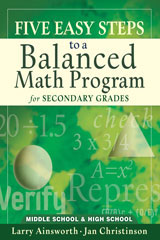
Five Easy Steps to a Balanced Math Program: For Secondary Grades
Larry Ainsworth and Jan Christinson (Lead + Learn Press, 2006)
Rather than suggesting that your school abandon its current math program, the authors outline the five essential components necessary for any successful math program, and show you how to fill in the gaps. These five components are: computational skills, problem solving, conceptual understanding, mastery of math facts, and common formative assessment.
Click for PD ideas to introduce a balanced math program to teachers: PD IDEAS FOR USE WITH THE BOOK
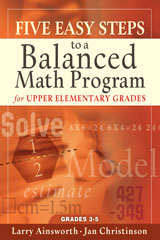
Five Easy Steps to a Balanced Math Program: for Upper Elementary Grades
Larry Ainsworth and Jan Christinson (Lead + Learn Press, 2006)
Rather than suggesting that your school abandon its current math program, the authors outline the five essential components necessary for any successful math program, and show you how to fill in the gaps. These five components are: computational skills, problem solving, conceptual understanding, mastery of math facts, and common formative assessment.
Click for PD ideas to introduce a balanced math program to teachers: PD IDEAS FOR USE WITH THE BOOK
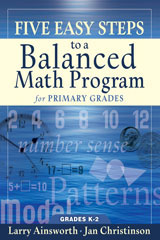
Five Easy Steps to a Balanced Math Program: for Primary Grades
Larry Ainsworth and Jan Christinson (Lead + Learn Press, 2006)
Rather than suggesting that your school abandon its current math program, the authors outline the five essential components necessary for any successful math program, and show you how to fill in the gaps. These five components are: computational skills, problem solving, conceptual understanding, mastery of math facts, and common formative assessment.
Click for PD ideas to introduce a balanced math program to teachers: PD IDEAS FOR USE WITH THE BOOK

Active Literacy Across the Curriculum: Strategies for Reading, Writing, Speaking, and Listening
Heidi Hayes Jacobs (Eye on Education, 2006)
Literacy achievement is essential to academic success. To improve literacy at your school, you must ensure that everyone is working toward this goal consistently. This acclaimed author provides 7 practical strategies for all teachers – in every grade and every subject — to integrate literacy instruction into their teaching.
Click here for PD ideas to support literacy across the curriculum: PD IDEAS FOR USE WITH THE BOOK

Change Leadership: A Practical Guide to Transforming Our Schools
Tony Wagner and Robert Kegan, with Lahey, Lemons, Garnier, Helsing, Howell, and Rasmussen (Jossey-Bass, 2006)
This book presents a powerful approach to creating real change in schools. Based on a five-year study, the authors provide concrete tools and exercises to show leaders how to help both their schools, and the individuals within those schools, change. By focusing on changing these two crucial elements at the same time, the authors present an approach to change that is truly comprehensive and realistic.

Learning by Doing: A Handbook for Professional Learning Communities at Work
Richard DuFour, Rebecca DuFour, Robert Eaker, and Thomas Many (Solution Tree Press, 2006)
This is the book to read to learn how to set up professional learning communities and equip them with specific strategies and structures to improve student learning.
Click here for: PD Ideas for Developing Teacher Teams

The Three-Minute Classroom Walk-Through: Changing School Supervisory Practice One Teacher at a Time
Carolyn J. Downey, Betty E. Steffy, Fenwick W. English, et al. (Corwin Press, 2004)
By conducting shorter classroom visits, principals will be able to see more classrooms more frequently and will know more than they ever have about their teachers’ practices. The walk-through process has tremendous potential to help principals strengthen their skills as instructional leaders, increase their visibility, add to their repertoire of instructional strategies, improve their ability to identify areas for staff development, and alert them to teachers who might become marginal.

The First Days of School: How to Be an Effective Teacher
Harry K. Wong and Rosemary T. Wong (Harry K. Wong Publications, Inc., 2004)
If you want to read one book to help teachers start the year successfully with vital classroom management, organization, discipline, and other strategies, this is the book for you. The book has sold almost 3 million copies because the authors identify the 3 characteristics of an effective teacher, and show teachers, in detail, how to become one.
Click here for Classroom Management Workshop Agenda with Handouts

When Kids Can’t Read: What Teachers Can Do
Kylene Beers (Heinemann, 2003)
Teachers often have no idea what to do when students at the secondary level (grades 6-12) struggle with reading. Beers argues that teachers can make a difference and shows them how to diagnose and address reading problems with practical strategies. This book is essential for middle and high school teachers who want to help their struggling readers.





























































